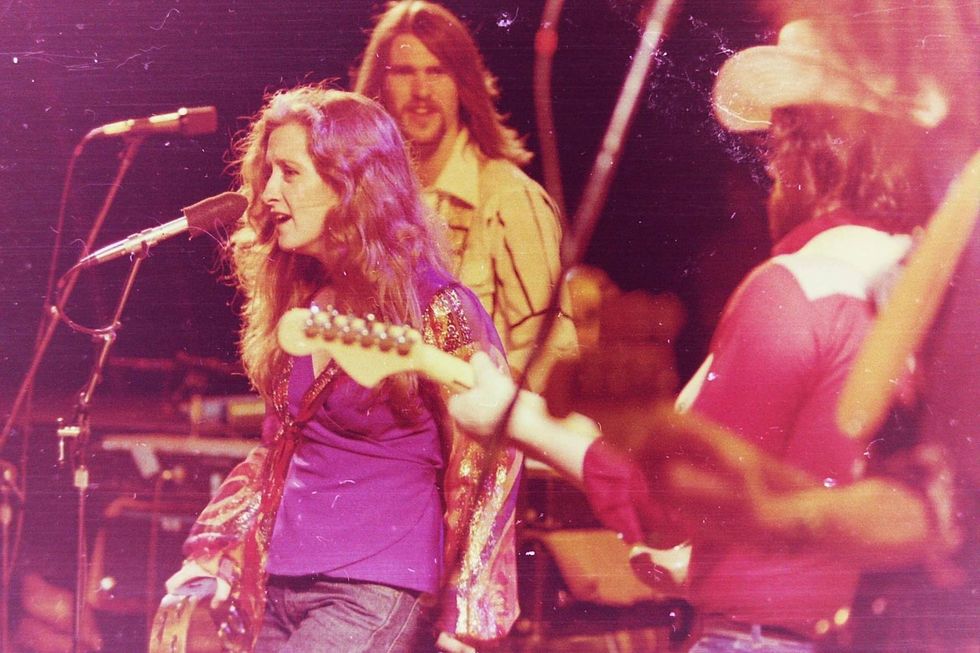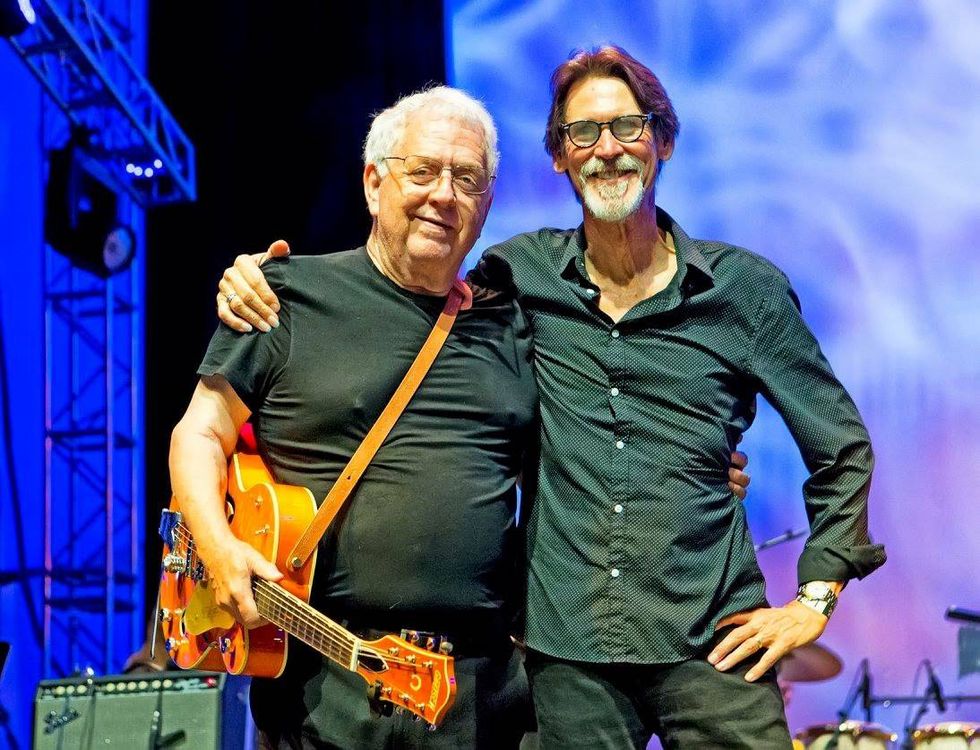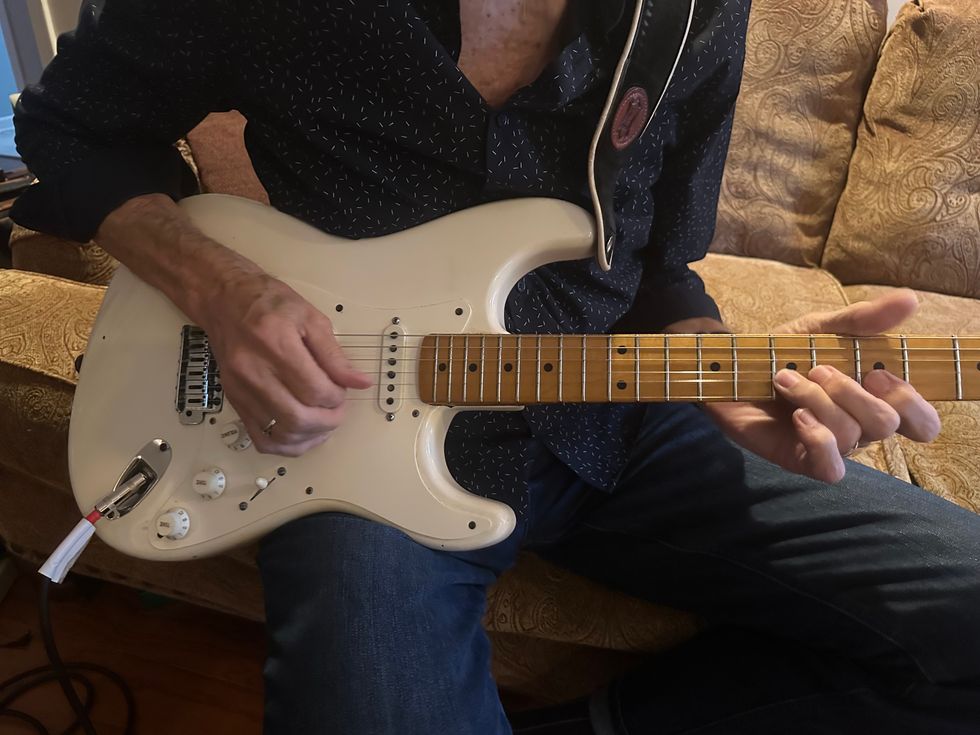Mdou Moctar, the performing moniker of Tuareg guitar icon Mahamadou “Mdou” Souleymane, has played some pretty big gigs. Alongside guitarist Ahmoudou Madassane, drummer Souleymane Ibrahim, and bassist Mikey Coltun, Moctar has led his band’s kinetic blend of rock, psych, and Tuareg cultural traditions like assouf and takamba to Newport Folk Festival, Pitchfork Music Festival, and, just this past April, to the luxe fields of Indio, California, for Coachella. Off-kilter indie-rock darlings Parquet Courts brought them across the United States in 2022, after which they hit Europe for a run of headline dates.
Mdou Moctar - "Oh, France" (Official Audio)
But the band’s most treasured performances to date weren’t any of these, the stuff of Western musicians’ dreams. They were free, impromptu generator shows around Agadez, a city in Niger’s Sahara desert. They were the type of gig any DIY punk musician knows well: no stage, no light show, no fancy PA or mixing—just some guitars and amps, a drum kit, some flood lights. At one of the first shows, the band set up their gear against the beige walls of a school, and soon a crowd of locals—most of them Tuareg, an Indigenous ethnic group that lives across the Sahara region—had kettled the band in, anxious to hear the music. Kids hung out a window of the school, cell phones alight as they documented the gig. The band tasked a couple local friends with recording the set.
It’s thanks to them we get a glimpse of the blistering, pure power of that night with the performance of “Imouhar” uploaded to YouTube. It’s the second track from Mdou Moctar’s sixth full-length record, Funeral for Justice, released on May 3. It starts at a mid-tempo clip, with Moctar’s lacerating, hammer-on- and pull-off-heavy shredding soaring above Ibrahim’s tight groove and Madassane’s driving rhythm chording. People dance and clap and grin as the song picks up speed, like a runaway train on a steep hill, free and wild and reckless.
On a video call from a New York apartment, Moctar, speaking in French through a translator, says the shows had “historical importance” for the band: “Being able to be in Agadez, and having our people around us, supporting us, and the youth being there was so special for us. Also, to inspire young people for the future. We had tried to do that since [our first album] Anar, right up to [2021’s] Afrique Victime, but we hadn’t managed to do it in that way before. This time, we really managed to. It made us very proud of our work, and the way we were able to work.”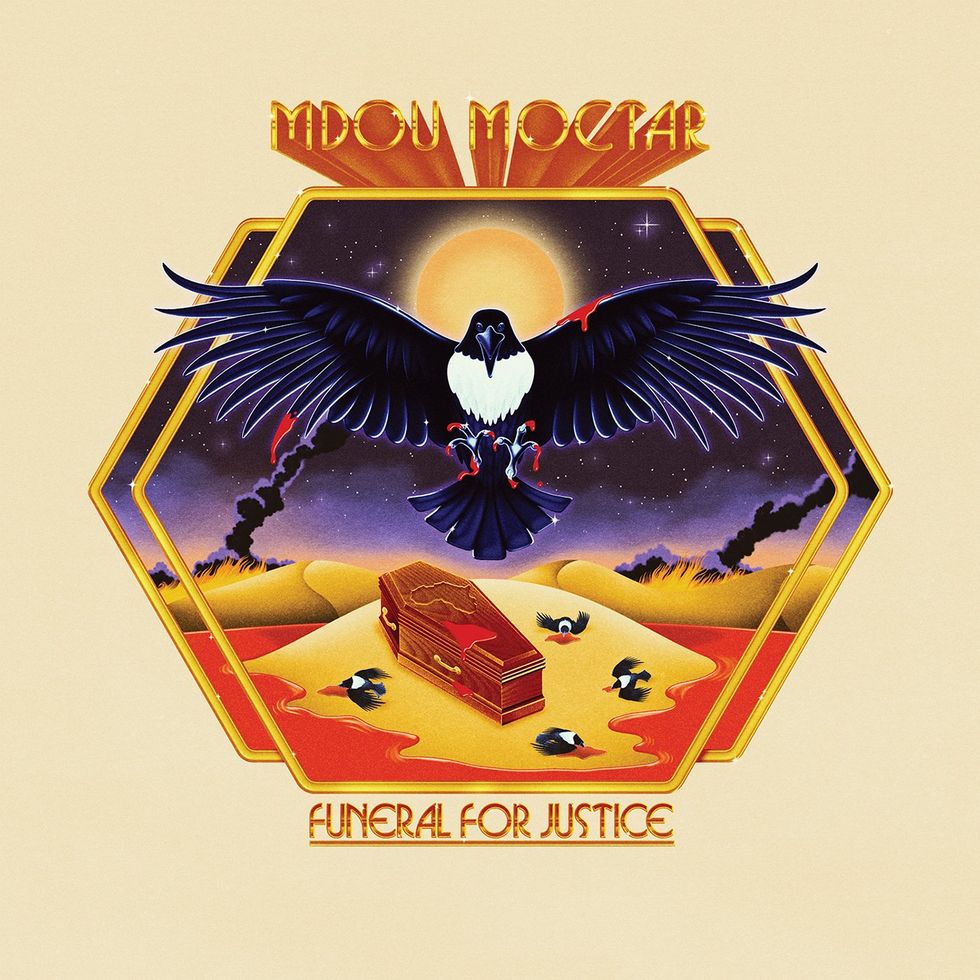
Decades of oppression, violence, and a constantly darkening political horizon for Tuareg people—and Africans in general—have led Moctar to declare a Funeral for Justice.
Coltun, who grew up in Washington, D.C., and is the band’s only non-Tuareg member, started following Mdou’s music while playing in Mali in 2011, and he connected with the guitarist via the Sahel Sounds label shortly after. Coltun was managing the band’s 2017 U.S. tour when Moctar invited him to join the group. Every time he goes with the band to Niger, Coltun says he sees kids mimicking Mdou’s style, a Saharan recasting and mashing-up of Eddie Van Halen’s volcanic tapping techniques. “It’s turned into his own style, and there’s kids around playing in that style,” says Coltun. Madassane’s rhythm playing, too, has left a mark. “Ahmoudou’s right hand, when he gets going, is so fast, and not a lot of people in Agadez can play that fast for that long and be relaxed. That’s really inspiring, to see all that stuff.”
“I’m an eternal student…. I never sit back and say, ‘Now I know how to play guitar.’” —Mdou Moctar
Funeral for Justice is, like everything the band does, rooted in an uncommonly keen sense of place, people, and responsibility. Sung almost entirely in Tamasheq, a Tuareg language, the record puts centuries of imperialism, colonialism, and oppression in its crosshairs. In the late 1800s, European powers endeavored to control Africa’s west coast, resulting in the French occupation and colonization of countries like Mali, Senegal, Côte d’Ivoire, and Niger. Funeral for Justice leaves no question as to the impact of France’s past and present subjugation of Africans on the continent. “Occupiers are carving up your lands while you watch / Gallantly marching all over your resources / Why is that?” Moctar, singing in Tamasheq, demands of Africa’s governments on the opening cut. Later, on “Oh France,” the Tamasheq vocals mourn, “Youth around the world is thriving, meanwhile my people’s fate remains uncertain / The world rises and falls, meanwhile my people remain immobile.”
Even simply singing in Tamasheq is an act against dominion. “The Tamasheq language is starting to disappear because our youth don’t speak it well,” says Madassane. Moctar concurs. “They’re interested in other languages, mostly French, which is a language that has dominated almost all the African languages,” he adds. “They think that if you speak [French], it means you’re civilized or modernized somehow.” Moctar references the sad case of Tifinagh, a Tuareg script that’s almost disappeared. “We really want to give hope to our youth with our music and make them understand that they need to take care of this language, that there’s nothing more valuable than this. We want to say to the world that this is what constitutes our tradition and origins, and there’s nothing more precious.”
Mdou Moctar's Gear

Moctar and his bandmates prefer Fender instruments, whose bite and immediate presence are a perfect match for the music’s politics.
Photo by Mike White
Guitars
- 2018 American Stratocaster (white) with Lollar Strat Special S and Sustainiac pickups
Amps
- Orange Rockerverb 100 (live)
- Orange 4x12 cabs (live)
- Soldano SLO-100 head (studio)
- Traynor vintage 4x12 cab (studio)
Effects
- TC Electronic PolyTune
- Union Tube and Transistor Shiny
- Analog Man Sun Face
- EarthQuaker Devices Acapulco Gold
- Champion Leccy Rocktar Fuzz
- Analog Man Mini Chorus
- Boss PH-3
- Boss DD-3
Strings and Picks
- D'Addario NYXL .010s
The musical roots from which Mdou Moctar (which is the guitarist’s nickname, but also the band’s name) have launched their furious, two-guitar attack can be traced back to the Sahara desert in northwestern African countries like Niger, Mali, Libya, and Algeria. When France began to occupy the region in the early 1900s, the nomadic Tuareg population was forced under their rule until the French retreated from the area in the ’50s and ’60s. The lands where the Tuareg traditionally lived were divided between nations with bigger populations and stronger political infrastructure, so the minority Tuaregs were once again on the back foot. They rebelled, trying to establish independence and liberation against new, French-installed governments. Malian governments crushed the uprisings brutally. Ibrahim Ag Alhabib, a young Tuareg man, fled Mali after his father was executed by government forces for participating in the rebellions. Years later, while playing music in militant Tuareg camps, Ag Alhabib formed the pioneering assouf-rock outfit Tinariwen.
“Ahmoudou’s right hand, when he gets going, is so fast, and not a lot of people in Agadez can play that fast for that long and be relaxed.” —Mikey Coltun
Like Moctar, Tinariwen injected rock and psychedelic sounds into the Tuareg struggle, electrifying their musical practices with Western pop and rock instrumentations. They branded their music “asuf,” a Tamasheq word that speaks to the loneliness, longing, and pain that seemed to characterize Tuareg life. Tinariwen’s bassist, Eyadou ag Leche, told an interviewer in 2011 that when they eventually heard the music of Jimi Hendrix, they recognized something common in his playing, a bond between American rock music and the Tuareg experience. “It was almost as if I had known that music from the day I was born,” he said in 2011. “I’m told that a lot of the Africans who went to North America came from West Africa, from our part of the world. So it’s all the same connection. I think that any people who have lived through something that is very hard feel this asuf, this pain, this longing.”
These are the musical and cultural contexts that shaped Moctar. He DIYed his first guitar from some wood and bike brake cables, and his first recordings were shared via Bluetooth on peer-to-peer cell-phone networks across northern Africa. Sahel Sounds, a Portland, Oregon, record label focusing on music from the Sahara, included one of Moctar’s tunes on a 2011 compilation release, then re-released his 2008 debut, along with two other full-length records and an original, Prince-inspired movie soundtrack. Third Man Records took notice and put out the band’s 2019 live record, M’dou Moctar: Blue Stage Session, then major independent Matador signed Moctar to release his 2021 American breakout LP, Afrique Victime.
Ahmoudou Madassane’s Gear
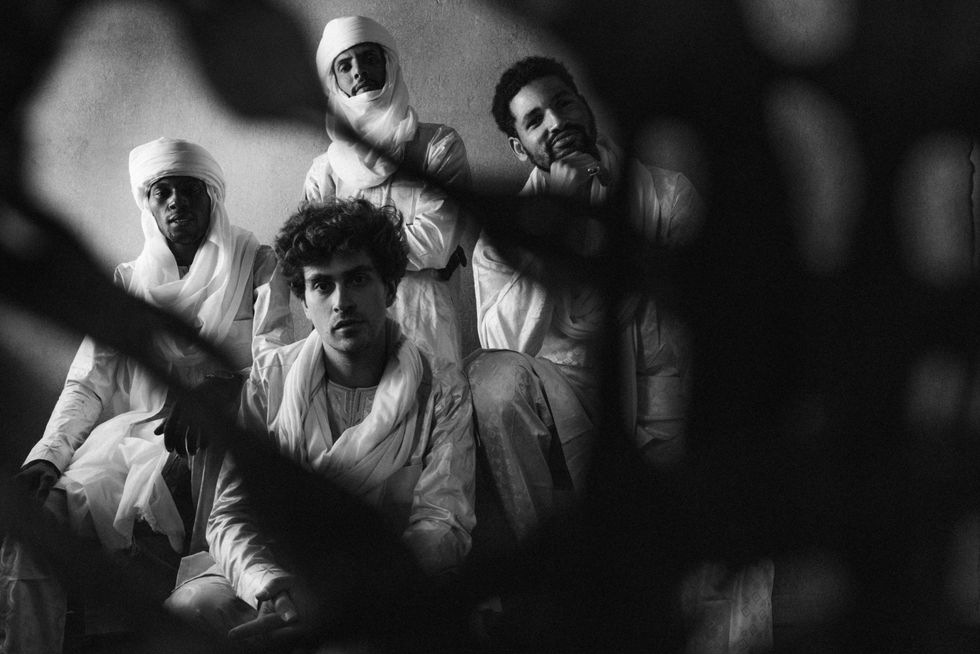
The music of Mdou Moctar spread regionally in Africa before being scooped by American label Sahel Sounds. After a live release on Third Man Records, the band signed with acclaimed indie Matador.
Photo by Ebru Yildiz
Guitars
- American Stratocaster (custom metallic green) with Lollar Strat Sixty-Four pickups
- 1980s Squier Stratocaster (red) with Lollar Strat Sixty-Four pickups
Amps
- Orange Rockerverb 50 (live)
- Orange 4x12 cab (live)
- Vintage Fender tweed Deluxe (studio)
- Vintage Fender Deluxe Reverb (studio)
- Vintage Fender Champ (studio)
Effects
- TC Electronic PolyTune
- Analog Man King of Tone
- EarthQuaker Devices Erupter
- Maxon PT-999
- Boss DD-7
Strings and Picks
- D'Addario NYXL .010s
The follow-up, Funeral for Justice, was recorded between an upstate New York rental house, Coltun’s apartment, and Agadez. It ups the outfit’s production value, and often, the pulse rate, too. A mid-boosted slam of chording opens the record’s title track, which drops into a crackling 6/8 swagger—a lot of the record plays out in a characteristic 3/4 or 6/8 groove—and introduces the band’s familiar call-and-response vocal style. The lo-fi, minor-key intro of “Imouhar,” which means something akin to “comrade” in Tamasheq, feels like a Tuareg analog to the slick flourishes and lead runs pioneered by original blues players of the American South. But soon enough, an electric note rises and howls, and the band crashes in like a thundering steam engine.
There’s plenty of noise and dynamic movement this time out. “Sousoume Tamasheq” starts with a screeching blast of rapid-picked notes that brings Hendrix’s “Machine Gun” to mind—though unlike Jimi’s distinct solo lines, Moctar’s leads are often incomprehensibly fast. The dark, simmering resentment of “Oh France” bursts open halfway through with a melody and timing change that thrashes upward in tempo until its climax. Then there’s the clap-and-percussion-driven desert-blues of “Imajighen,” as invigorating a modern blues song as you can find, or the acoustic noodling intro of closer “Modern Slaves,” which ducks and weaves between minor and major key over its slow, determined groove. The lyrics, meanwhile, articulate the absurd cruelty of modern inequity and inaction: “My people are crying while you laugh / All you do is watch.”
Throughout, one of the more stunning qualities is the duality of Moctar’s lead-guitar work. It’s difficult to figure out how he strings so many notes together in such frantic, precise phrases, like little strikes of lightning across the fretboard. But part of the magic of Mdou Moctar’s music is that these leads aren’t so much scene-stealers as one of a handful of bubbling, explosive elements, all ricocheting off one another. And while Moctar’s style seems by now distinct and singular to our ears, he insists he’s not content where he is. “I’m an eternal student,” says Moctar. “I’m always curious to try new things within my style. I never sit back and say, ‘Now I know how to play guitar.’”
Mikey Coltun's Gear
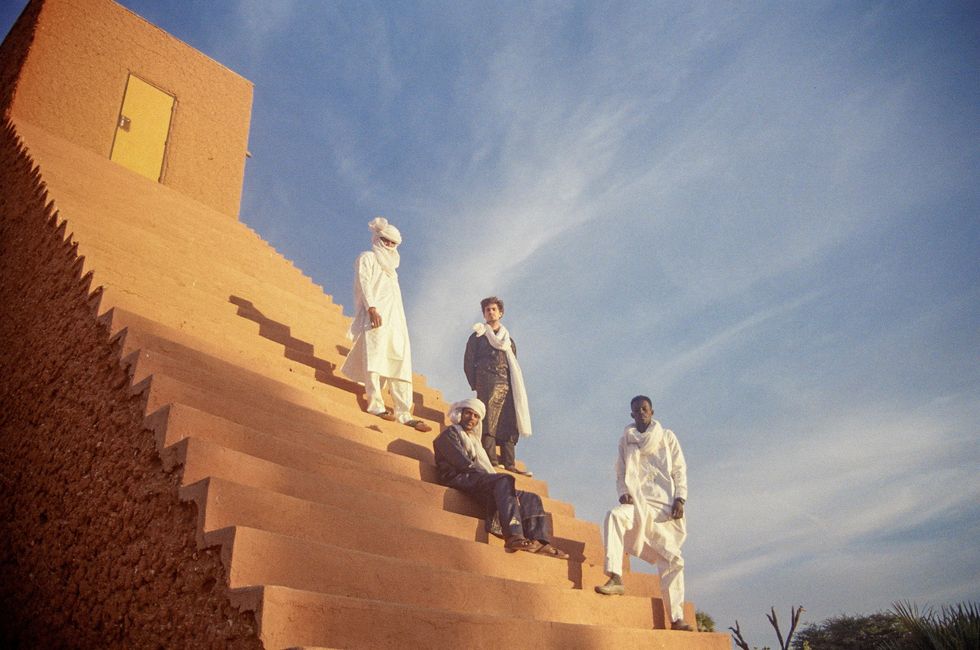
Moctar follows a Tuareg tradition of mixing rebellion and assouf guitar music, a lineage that originated in the 1970s with the Malian Tuareg rock outfit Tinariwen.
Photo by Nelson Espinal
Guitars
- 1966 Fender Mustang bass (white)
- 1971 Fender Mustang Bass (green)
Amps
- 1970s Ampeg SVT (live)
- Orange 8x10 cab (live)
- Fender 8x10 cab (live)
- 1970s Ampeg V4 (studio)
- Traynor 2x15 cab (studio)
- Ampeg B-15 (studio)
Effects
- TC Electronic PolyTune
- Boss OC-2
- EarthQuaker Devices Blumes
- Analog Man Sun Face
- Union Tube and Transistor Sub Buzz
- Aguilar Grape Phaser
Strings and Picks
- DR Strings Fat-Beams .045–.105
“We really want to give hope to our youth with our music and make them understand that they need to take care of this language, that there’s nothing more valuable than this.” —Mdou Moctar
The record’s grave title, however, does imply a finality. Funeral for Justice is not just a rhetorical phrase; Moctar and his bandmates really mean it. This record is frenetic and bright, but at its heart, it is a work of mourning. It’s a product of how the Tuaregs—and Africans in general—have been treated for centuries. “I don’t see justice on this earth,” says Moctar. “If you look at a European or an American citizen, they seem to have more value compared to an African citizen.
“The world is a really scary place for us today,” he continues. “War technology is progressing, and each country is just trying to become stronger than its neighbor, as if that was their priority. None of that makes sense to us. Why isn’t the world focusing on how to make life better for people instead of bombing them? Bombing innocents who don’t even make two dollars a day with bombs that are worth millions. Why are these resources not being used to make this world a better, more wonderful place?
“All these leaders know that doing all that would be possible, but instead they prefer to manipulate people into believing it’s not, and to continue to oppress the weak, and make the strong people in this world even stronger. That’s what makes us say that justice doesn’t exist.”
YouTube It
Flanked by comrades and youth, Mdou Moctar blast through a riotous performance of “Imouhar” at an outdoor generator show in Agadez, Niger.


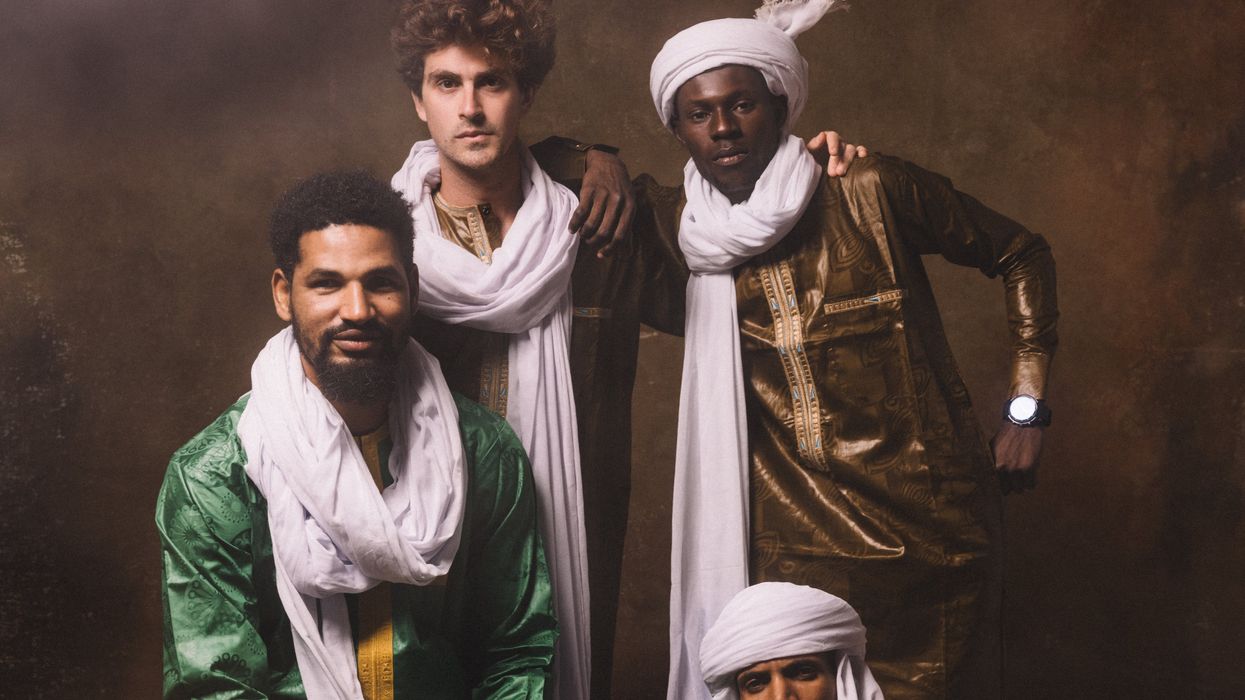


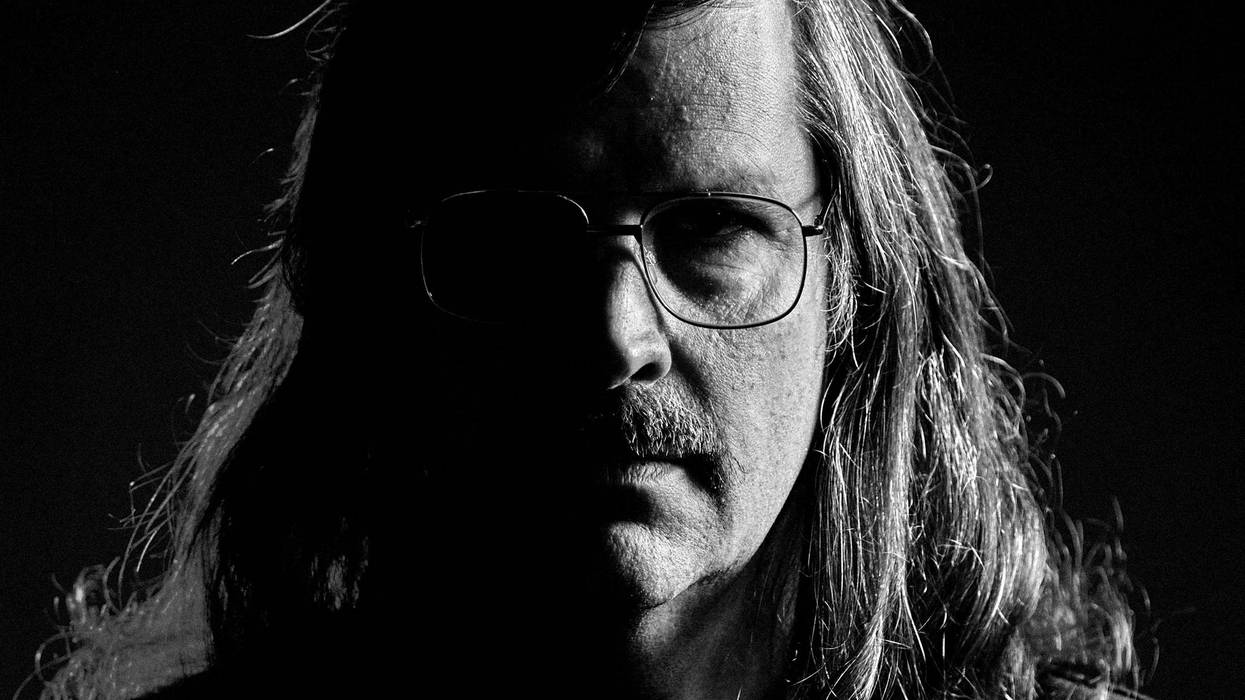
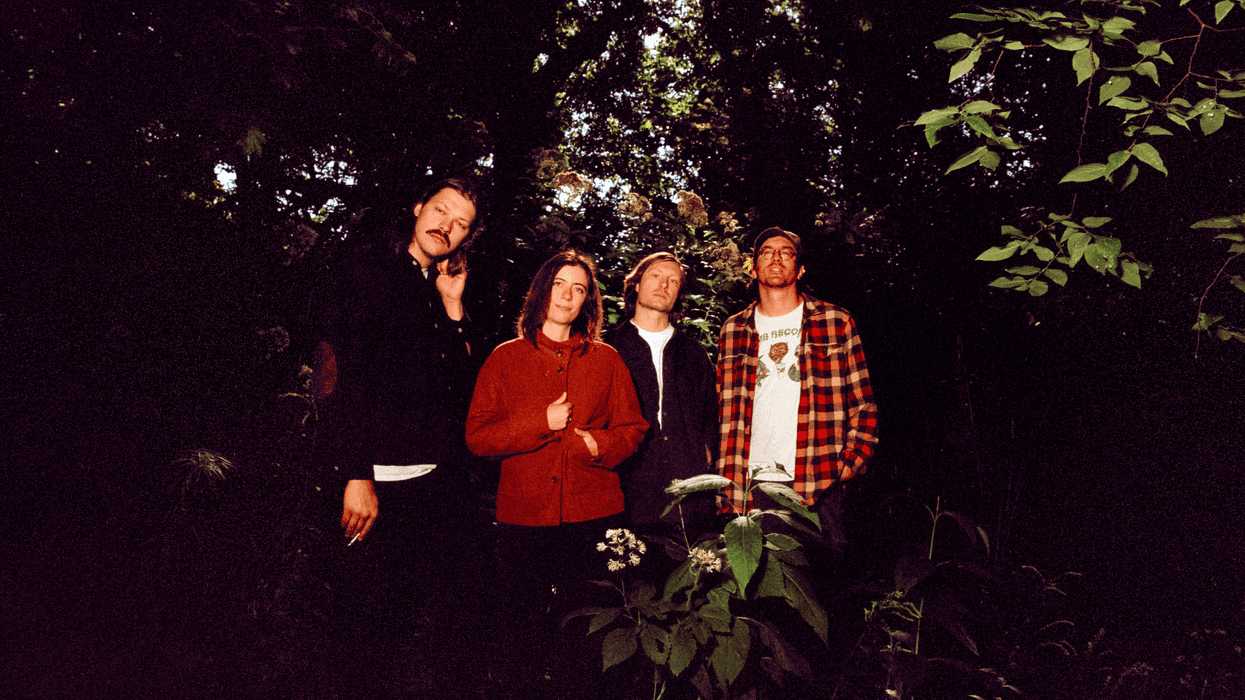

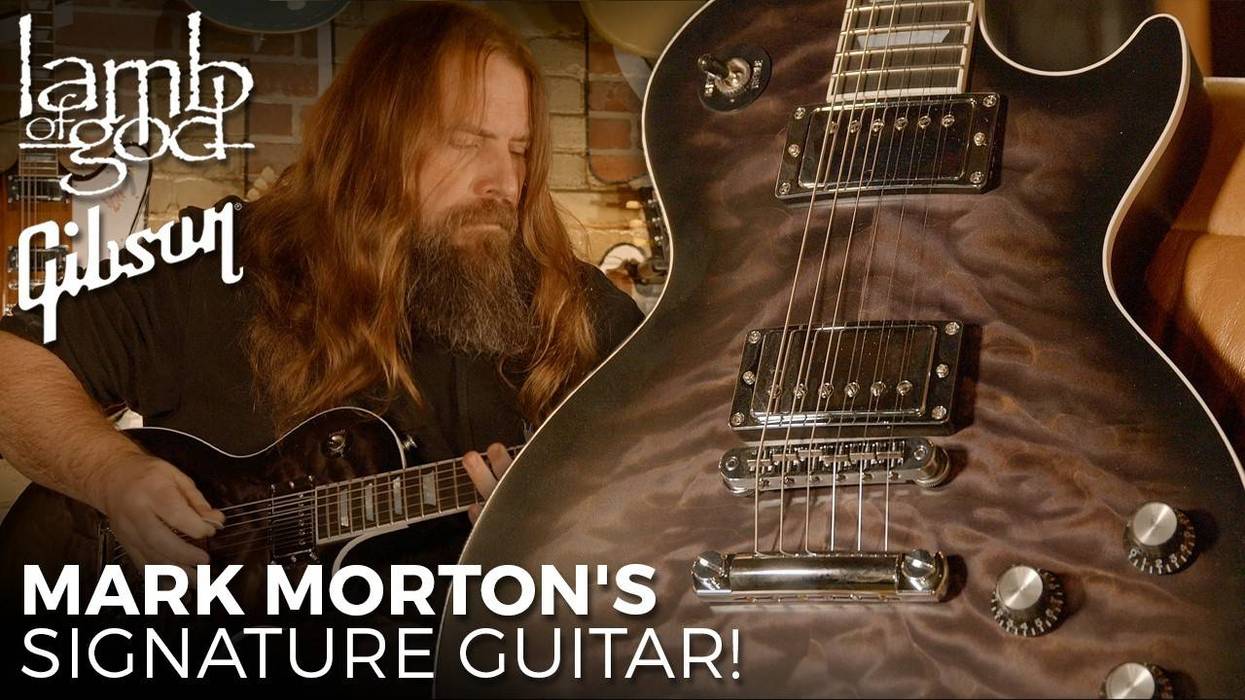
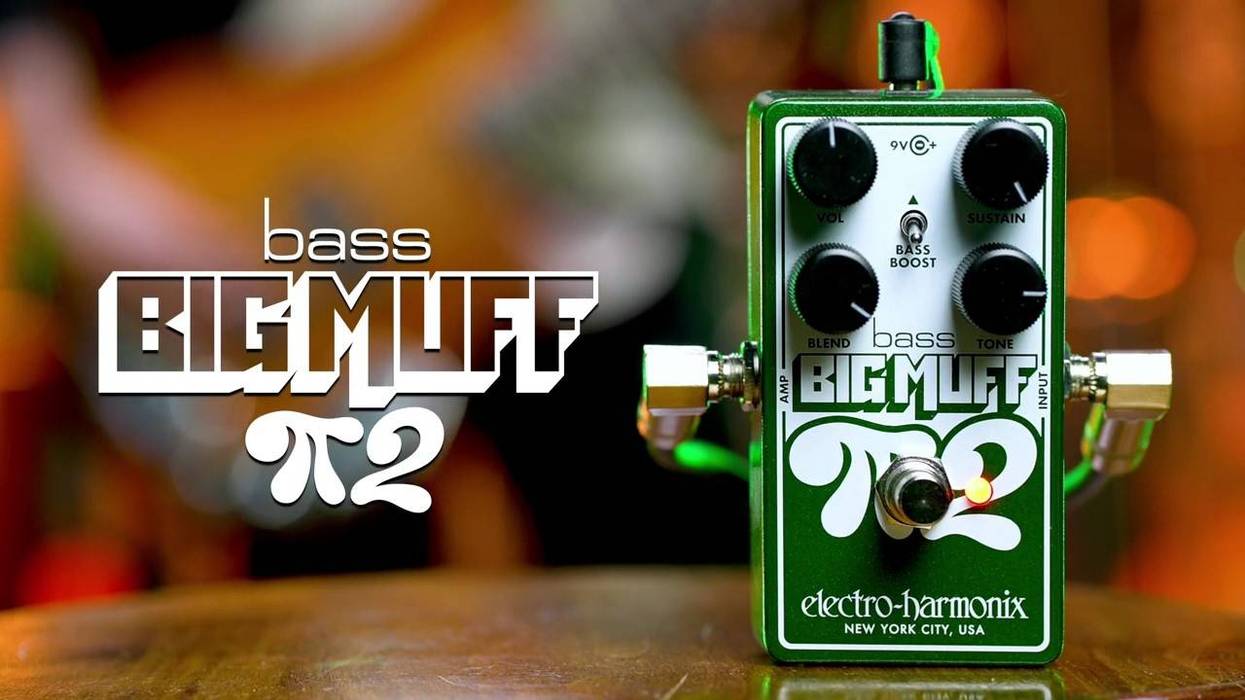
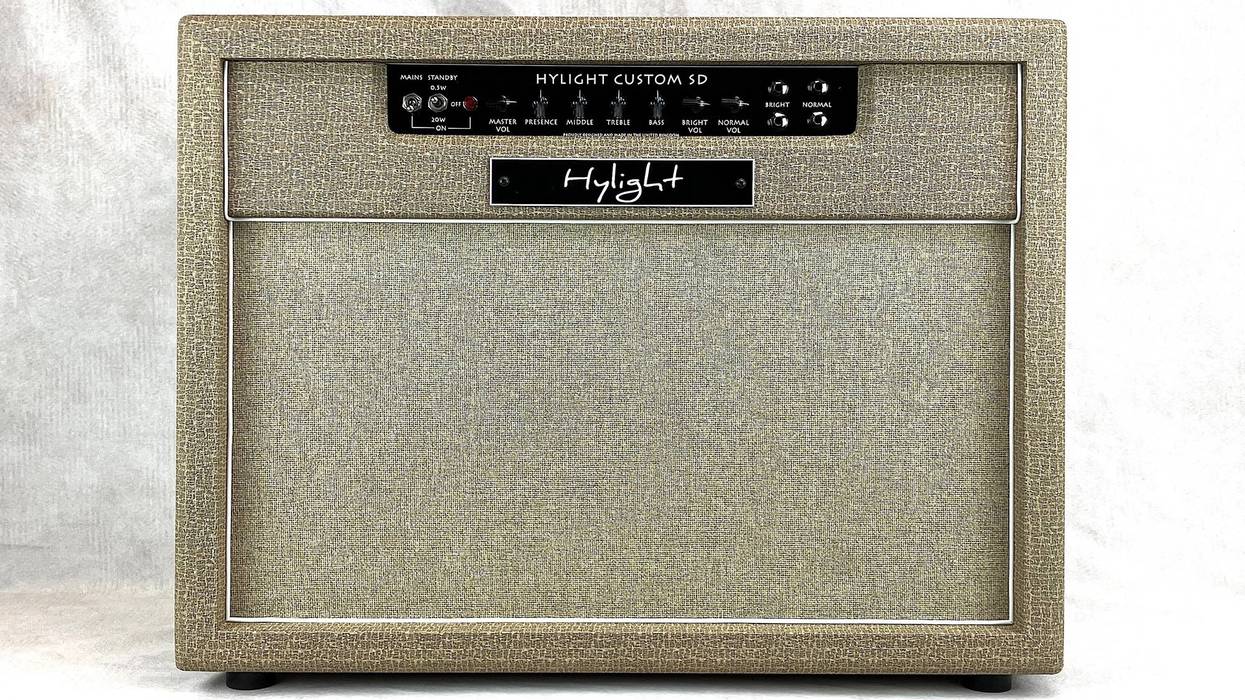


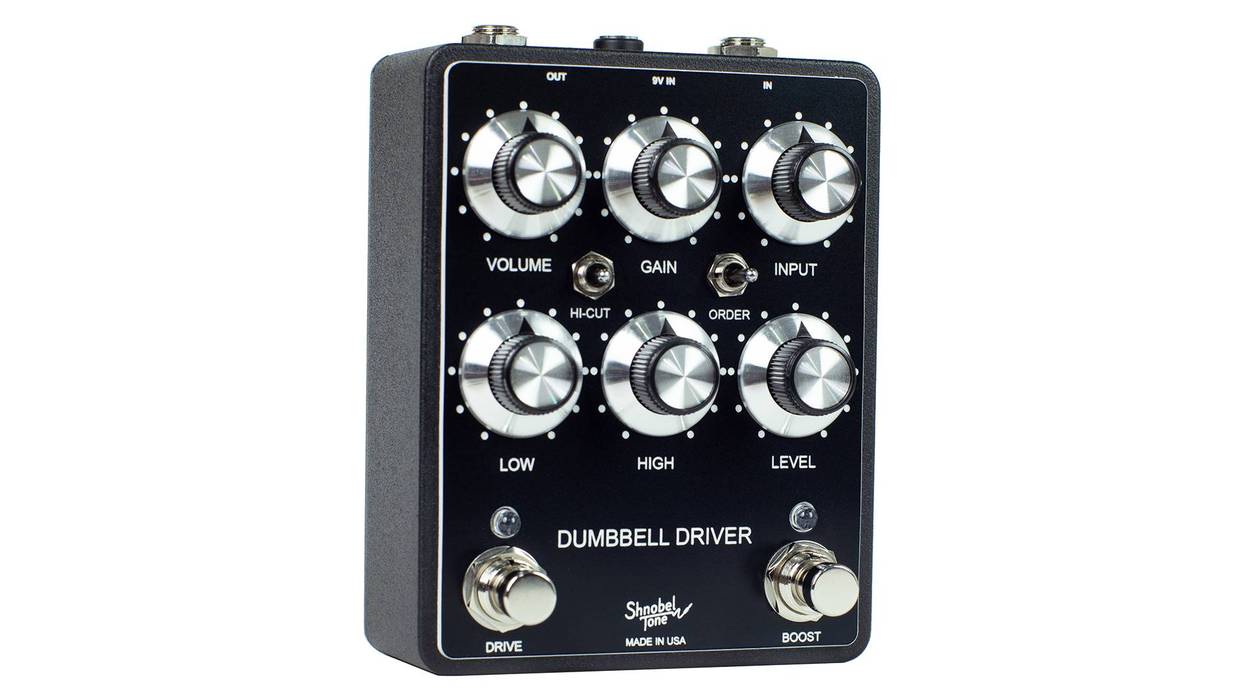
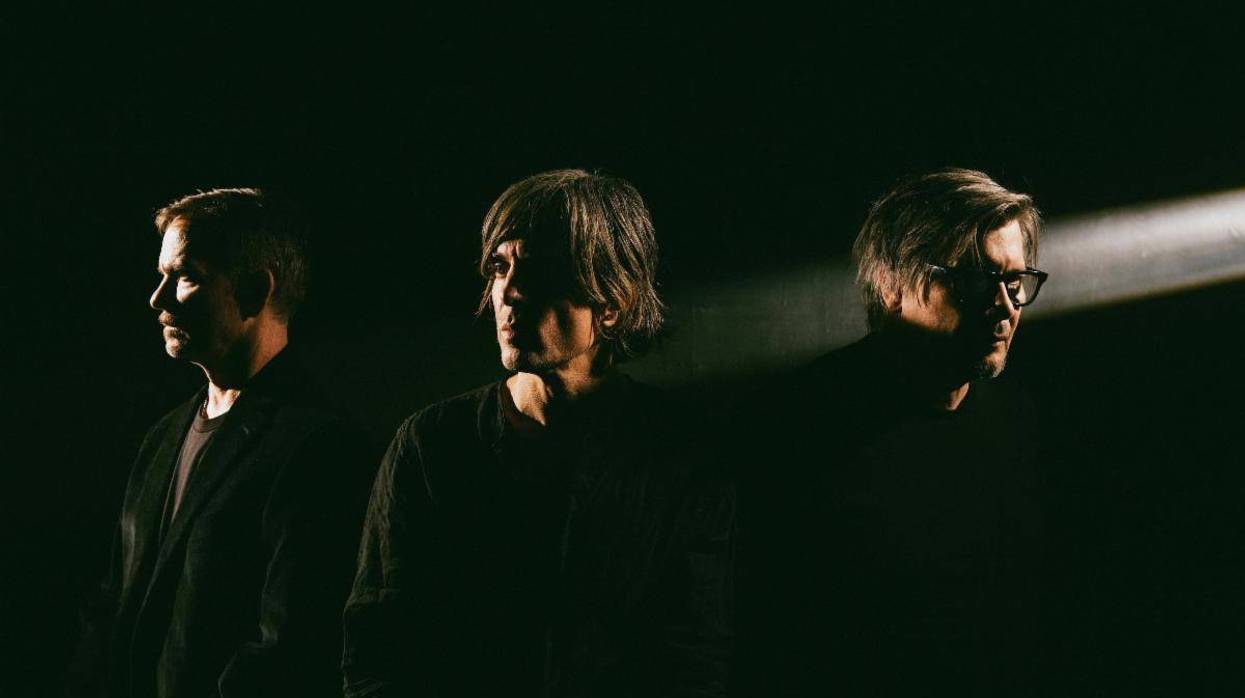
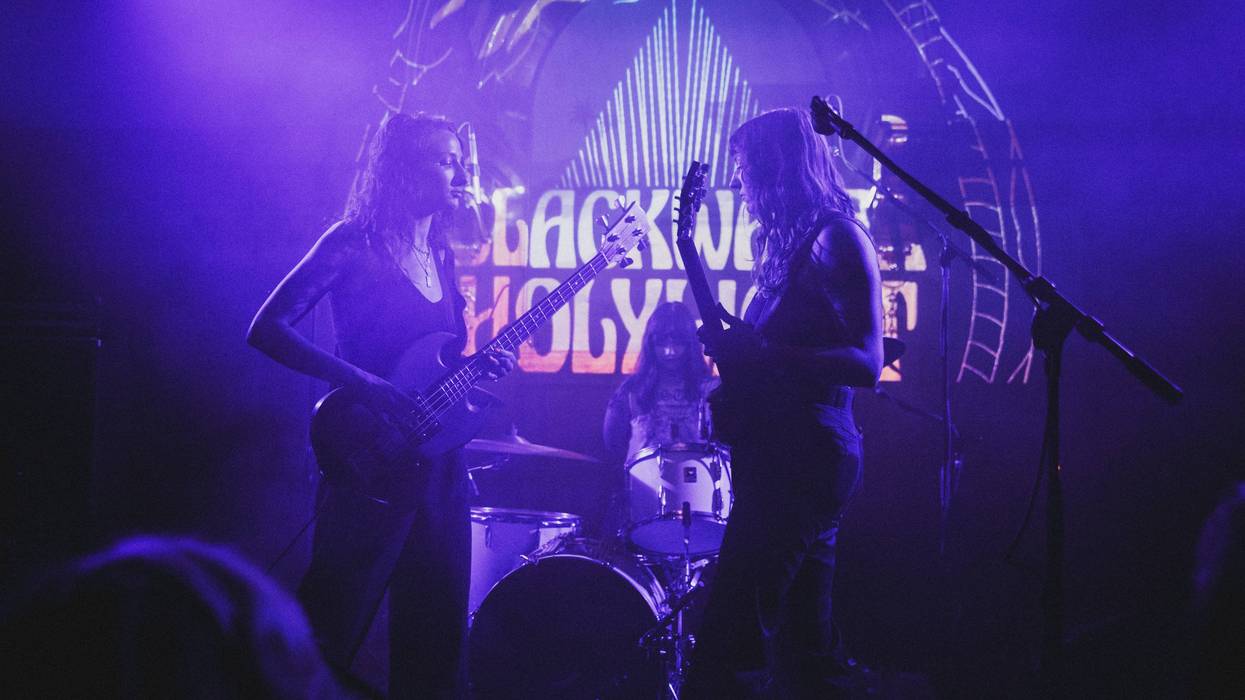

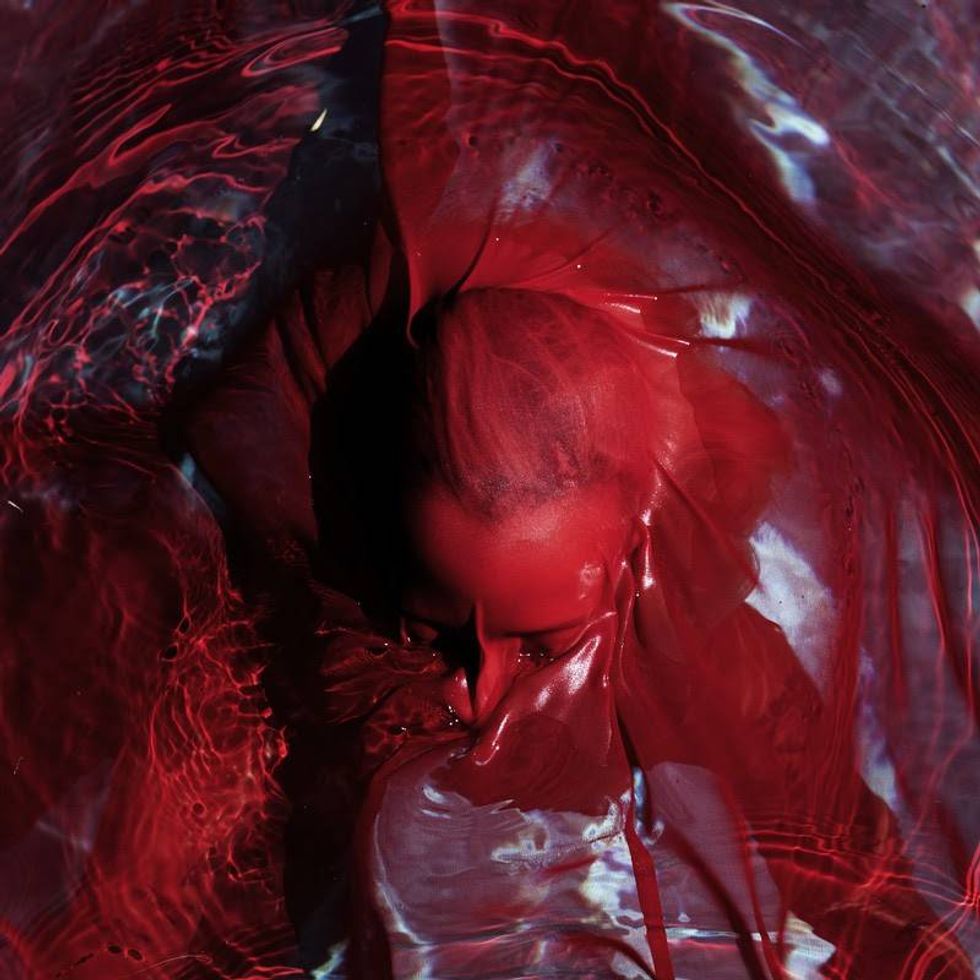
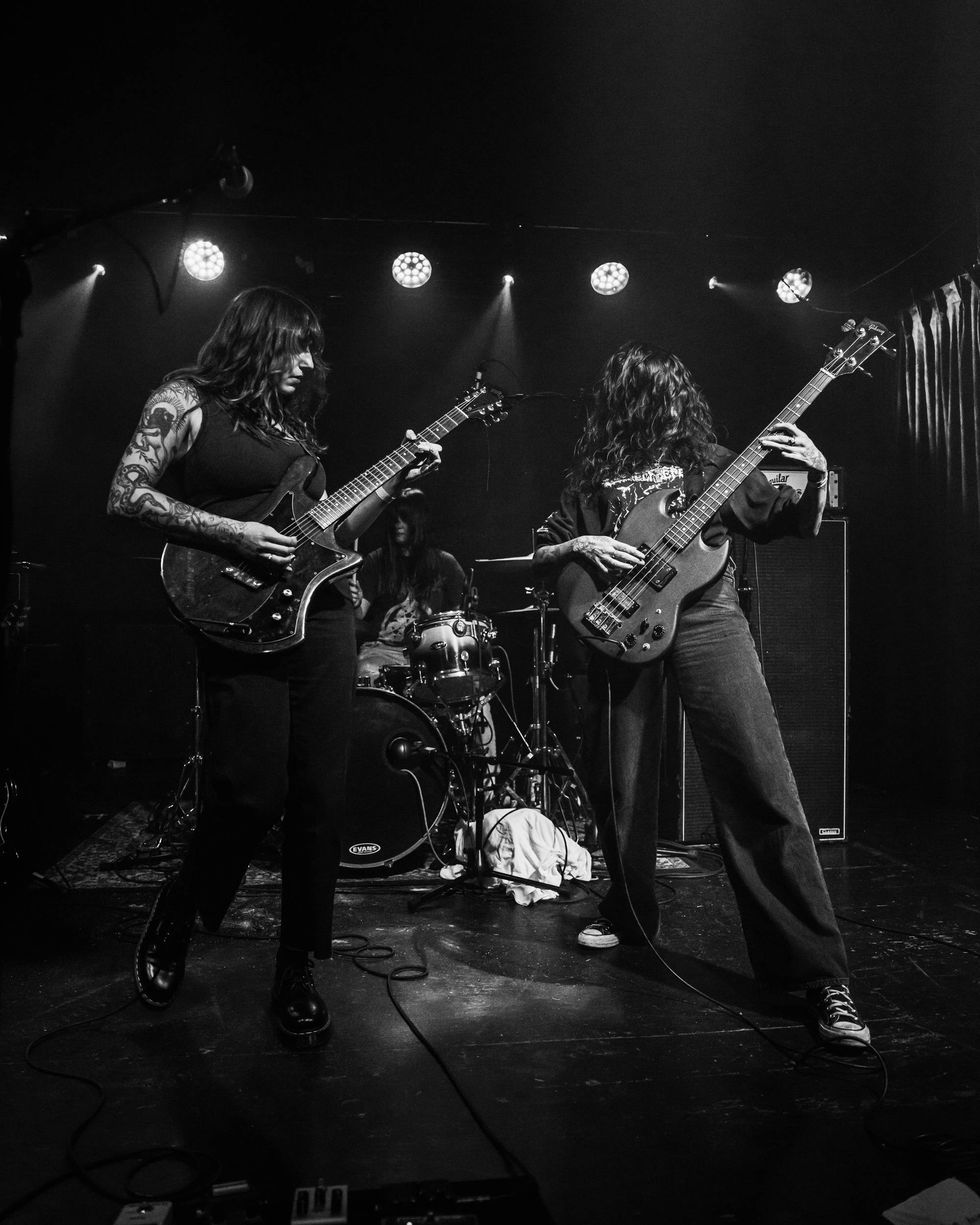
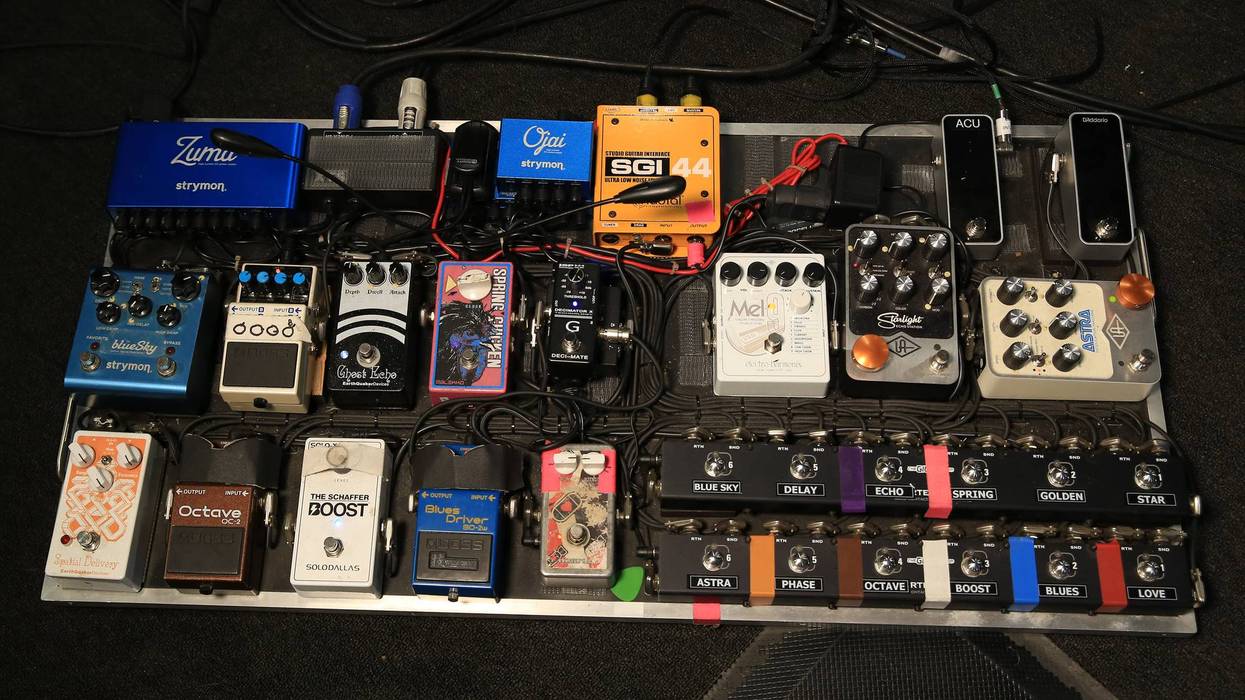
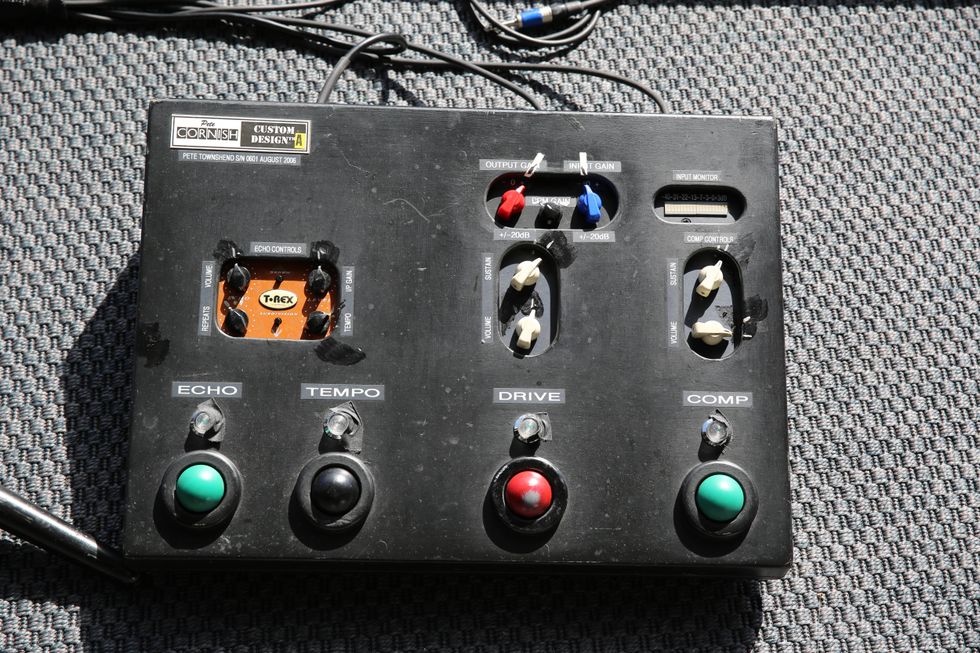
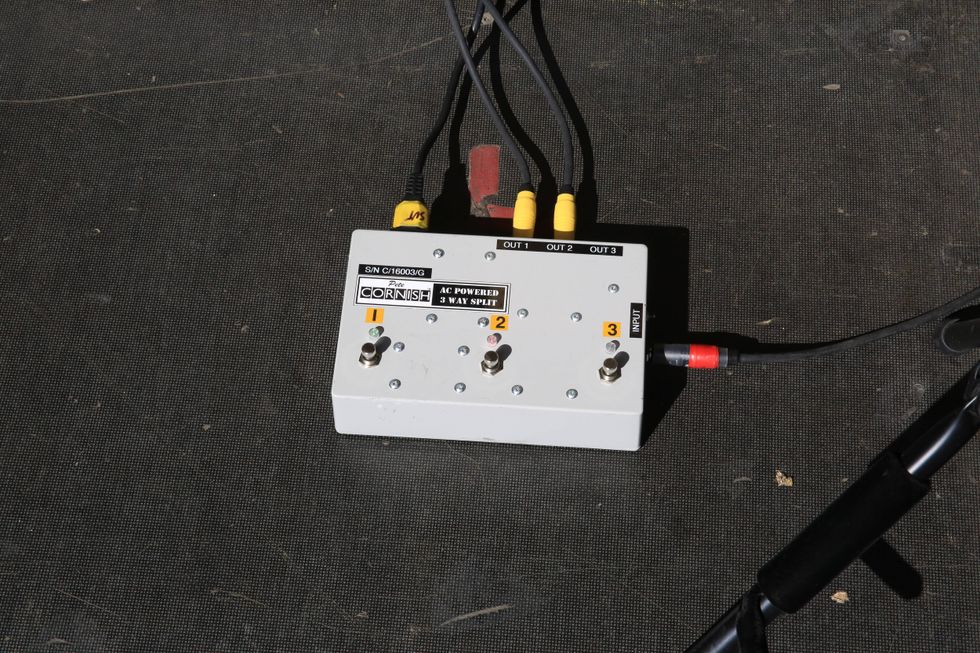
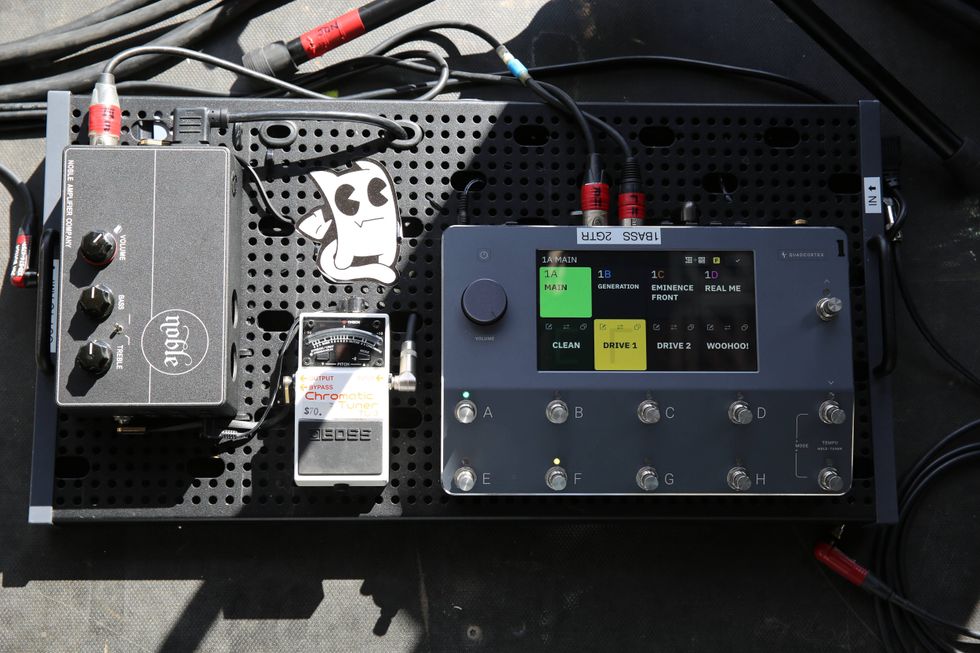
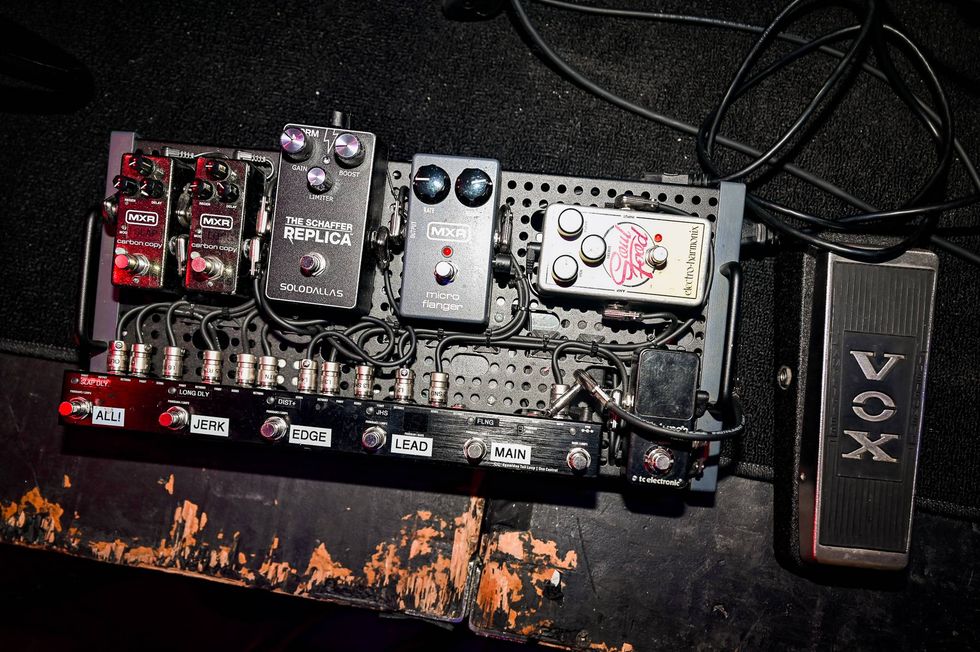
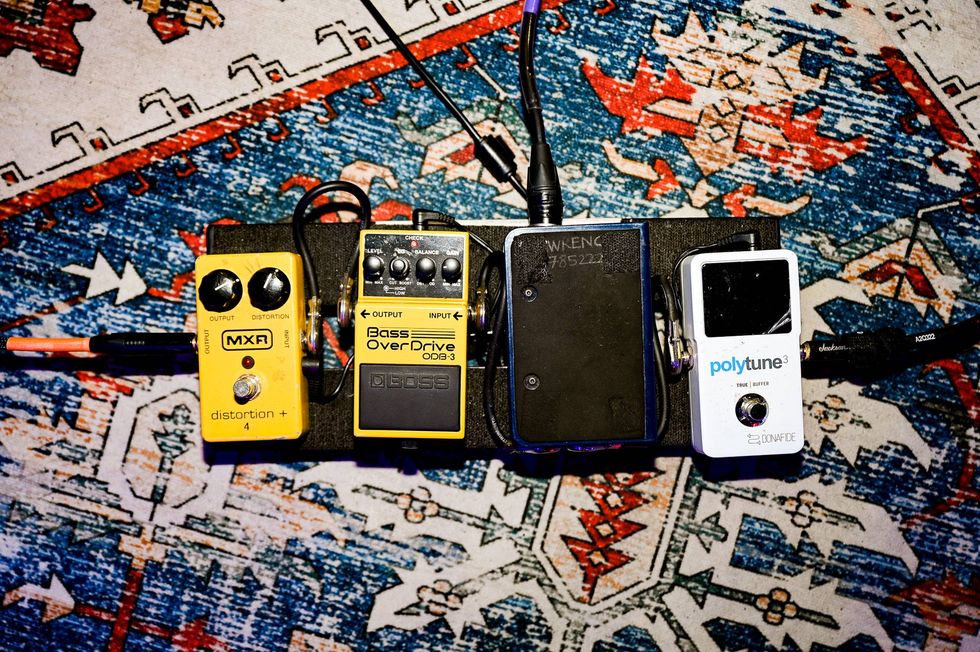
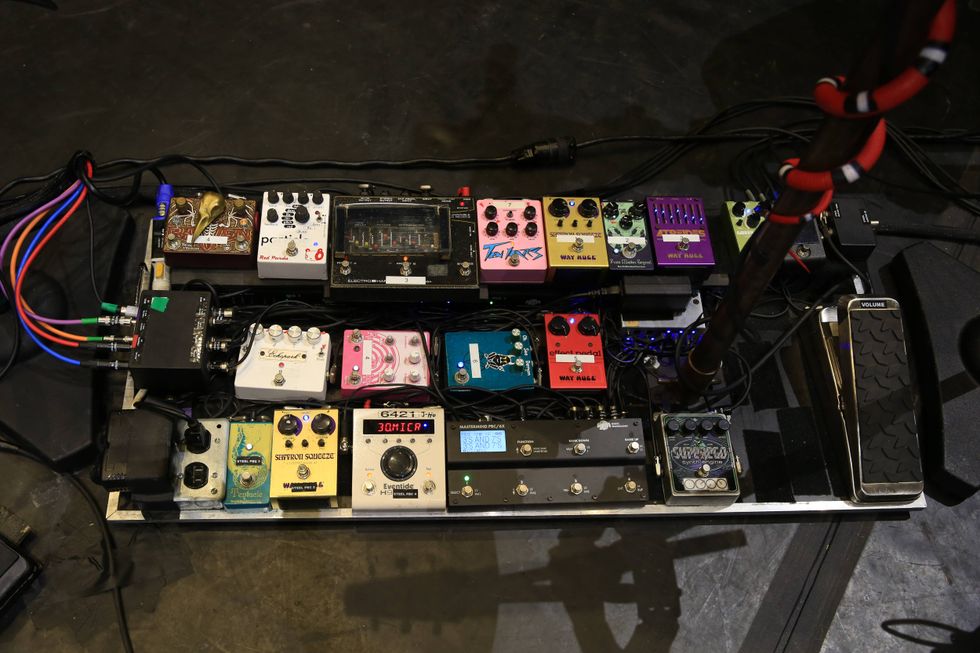
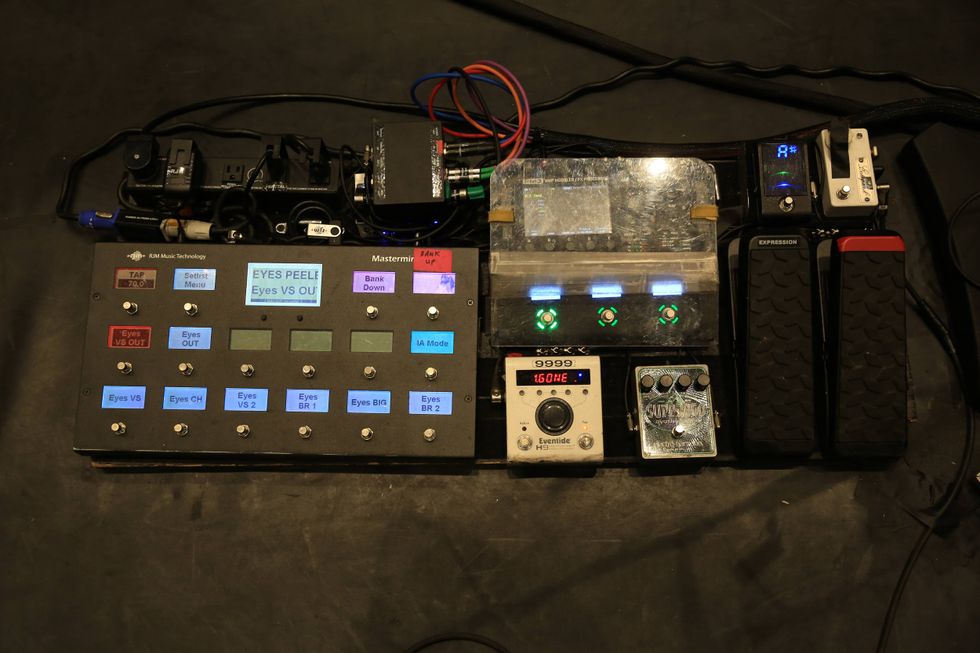
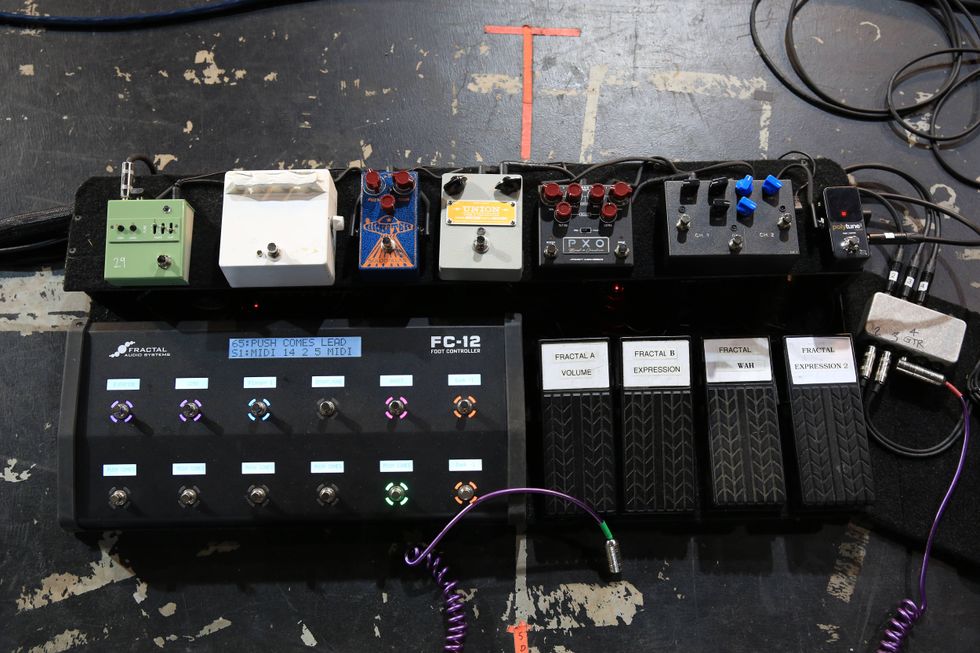
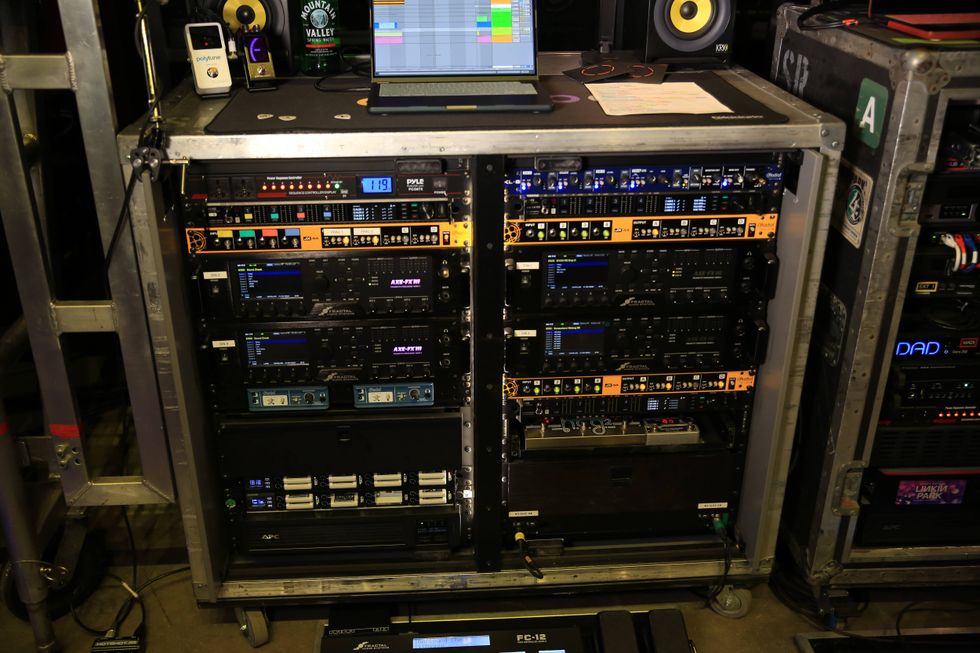
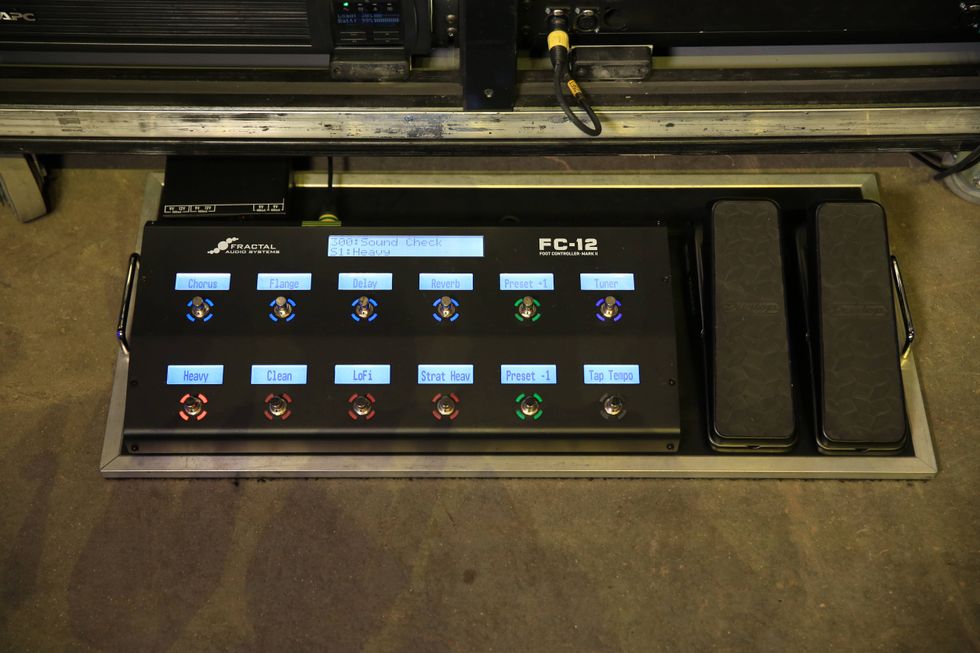
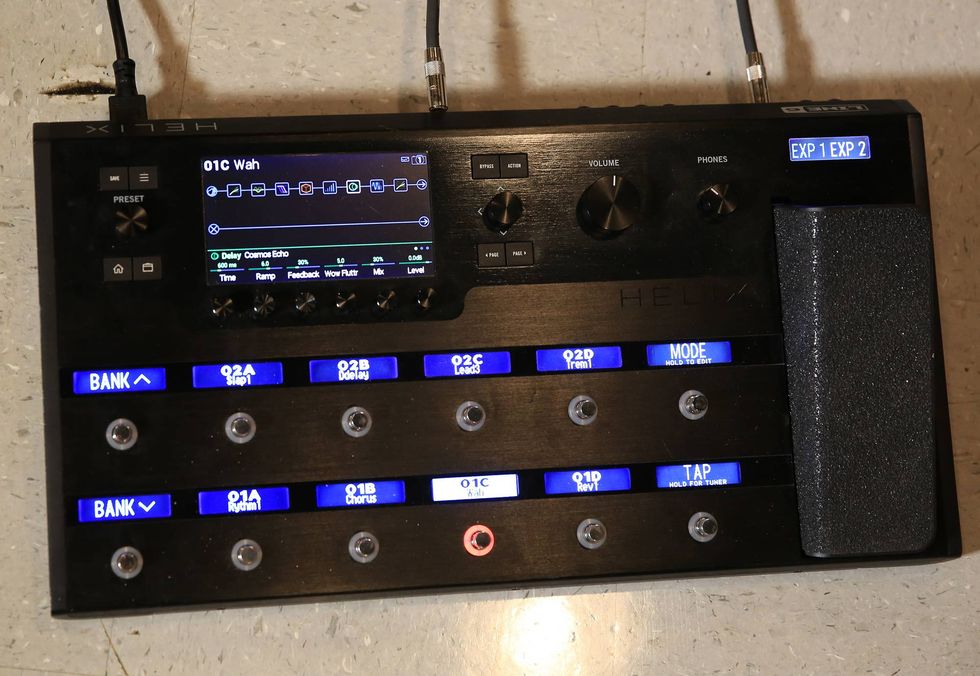
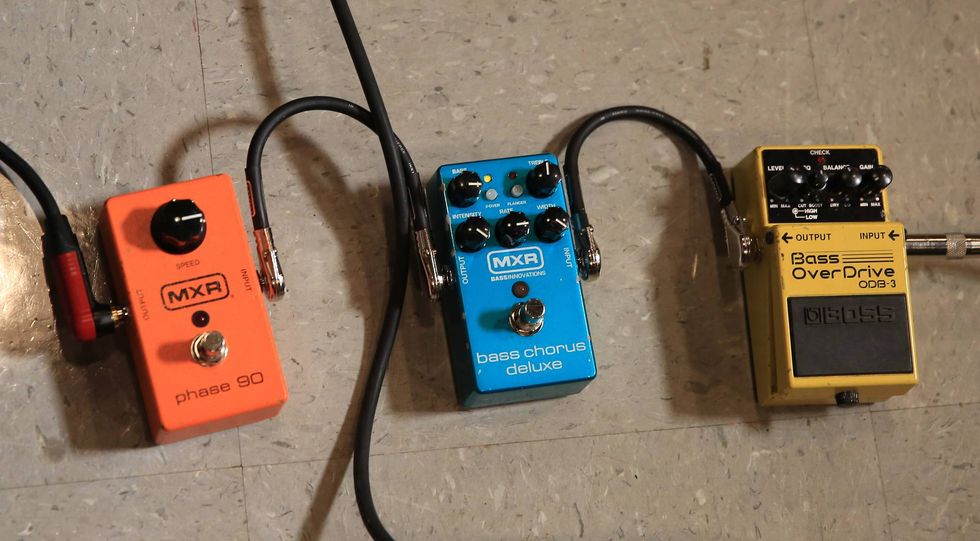
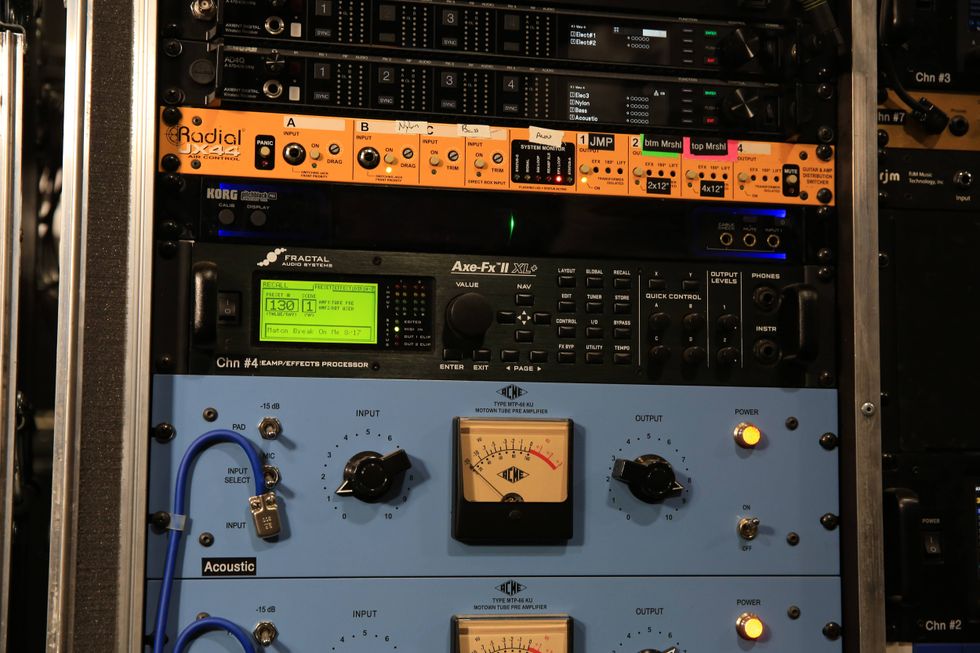
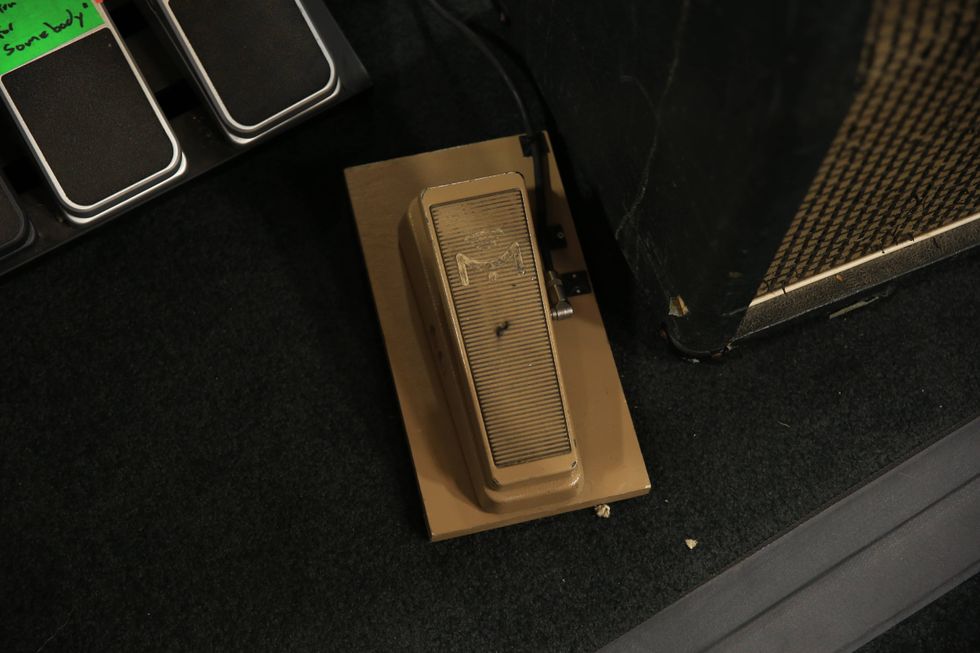
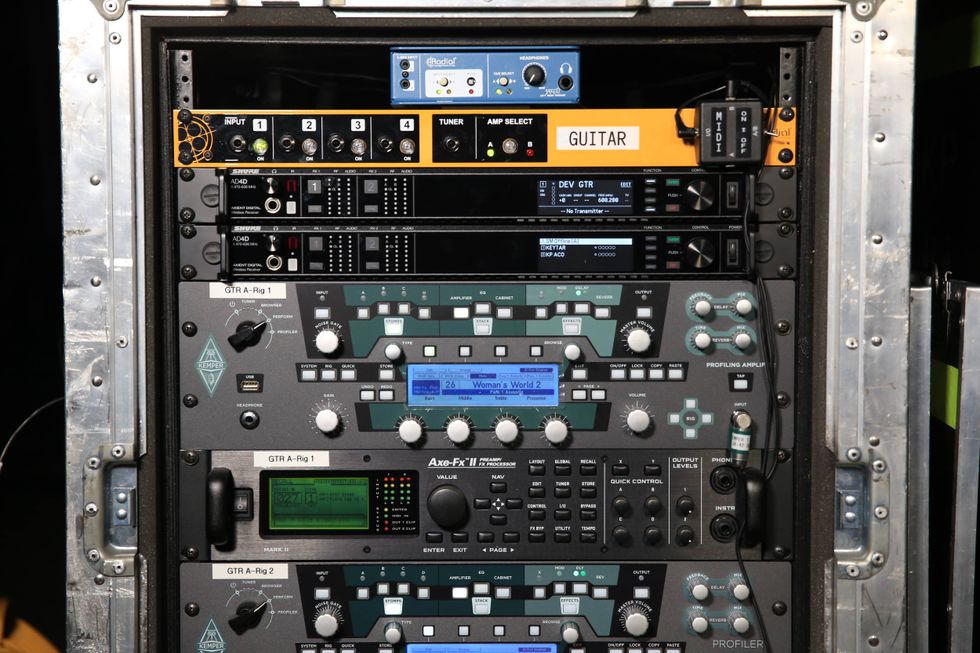
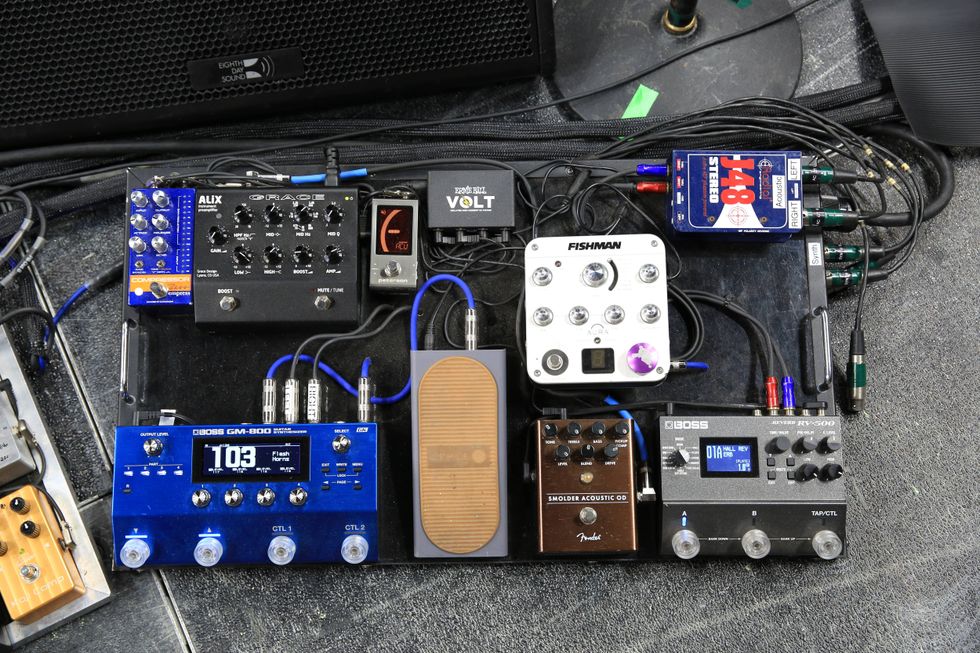
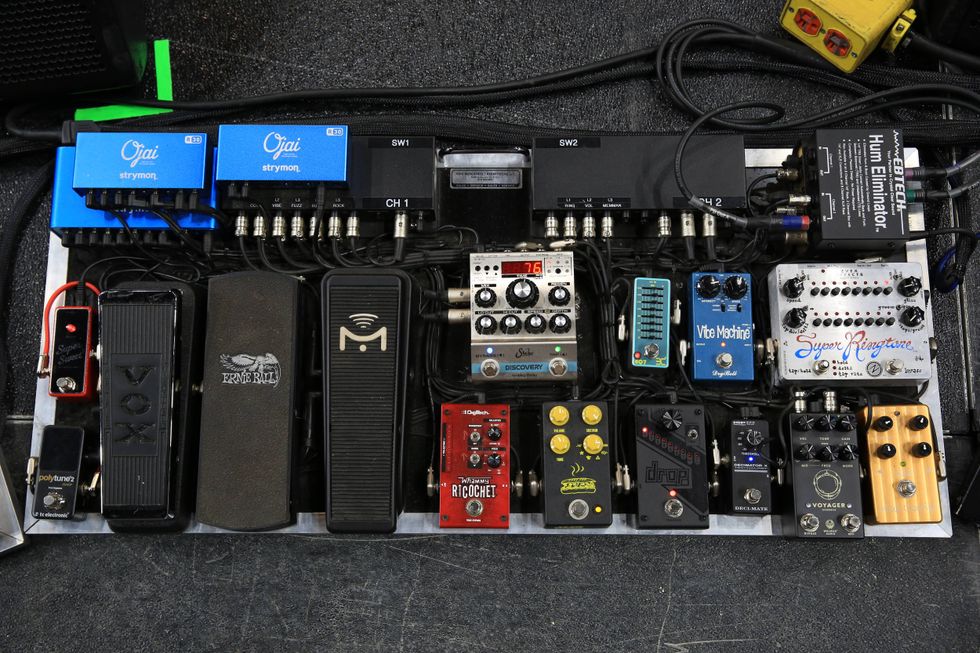
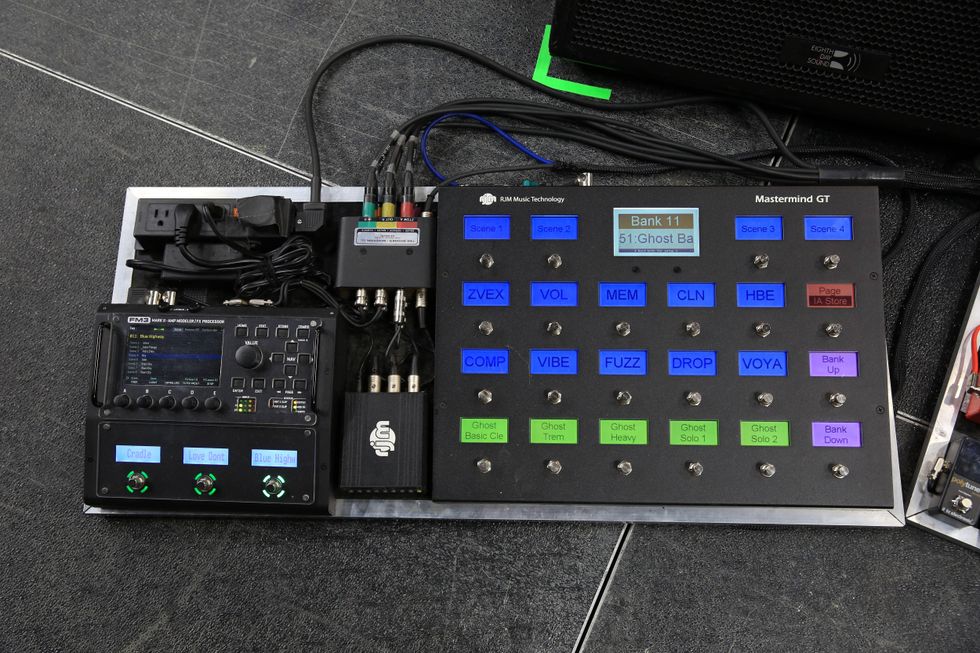
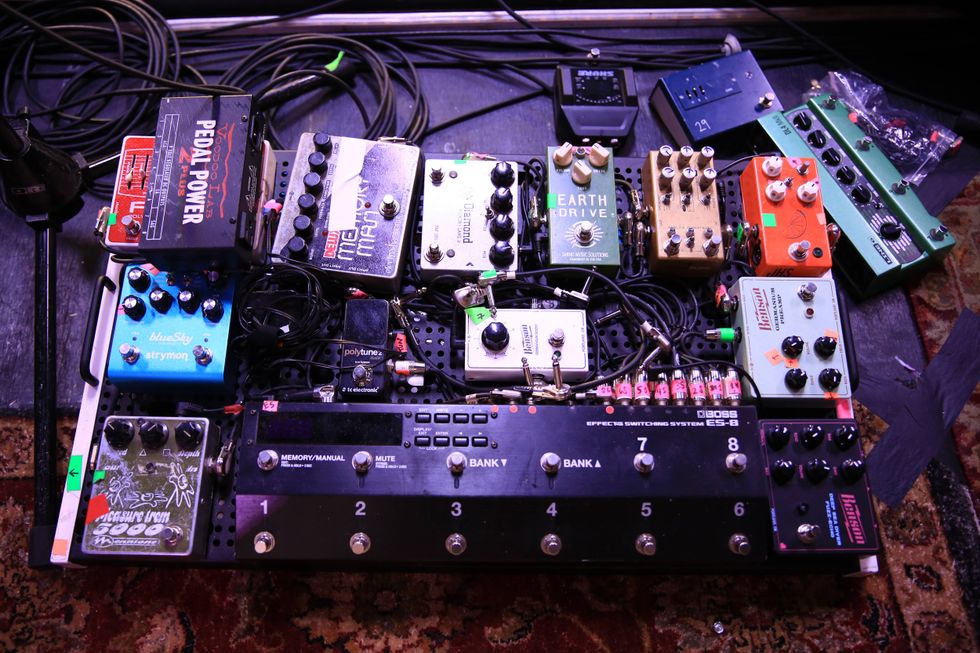
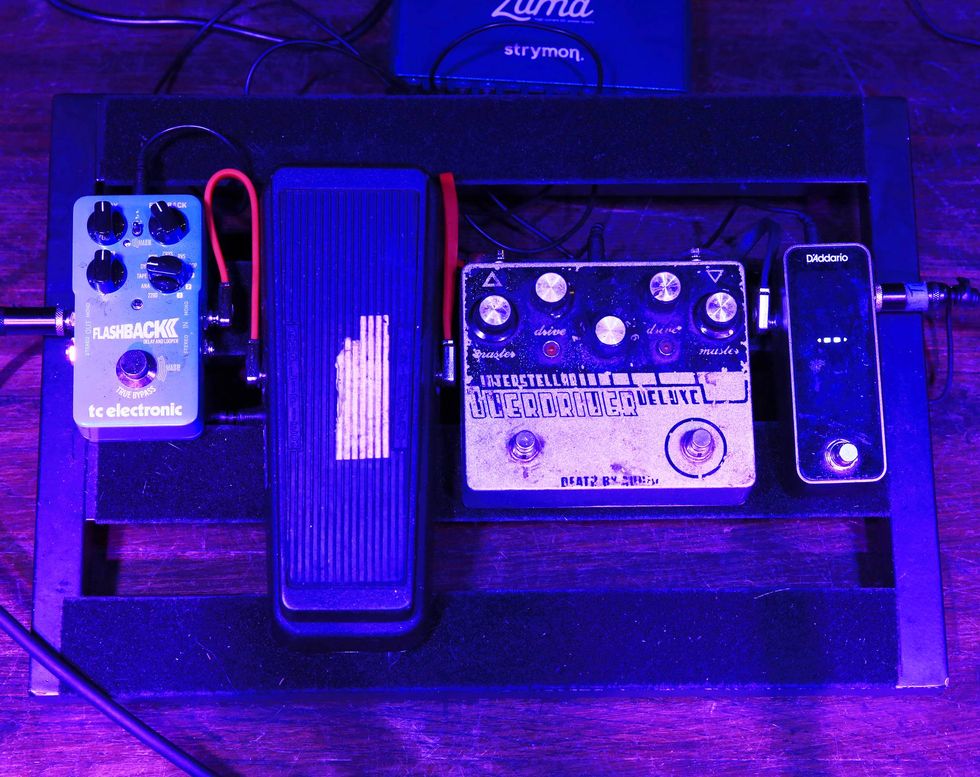
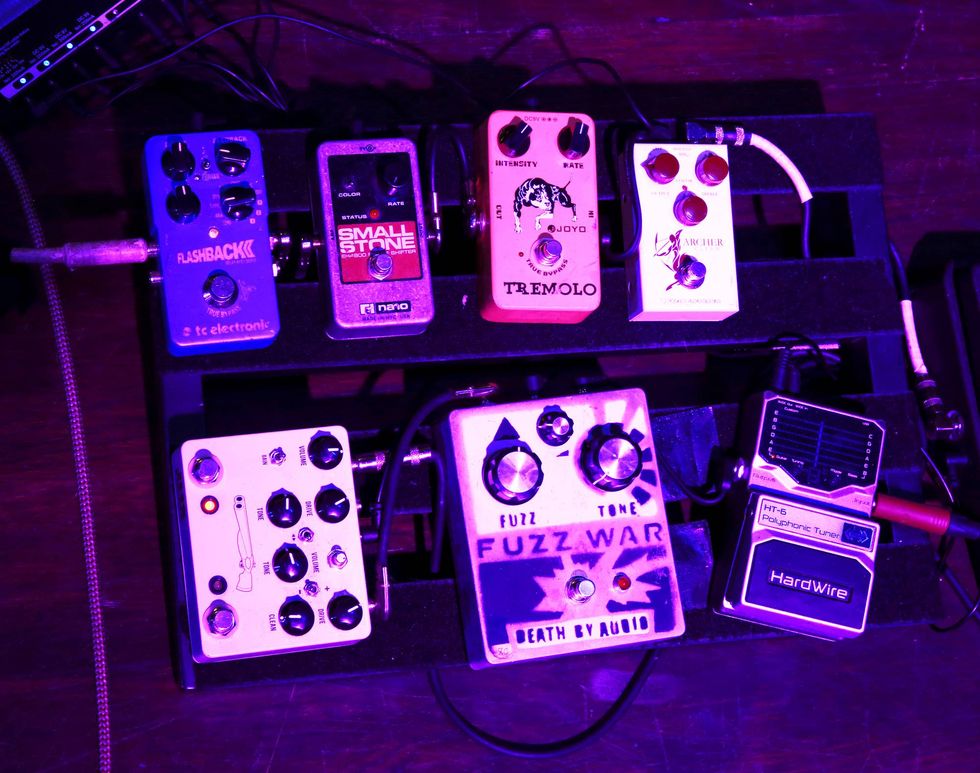
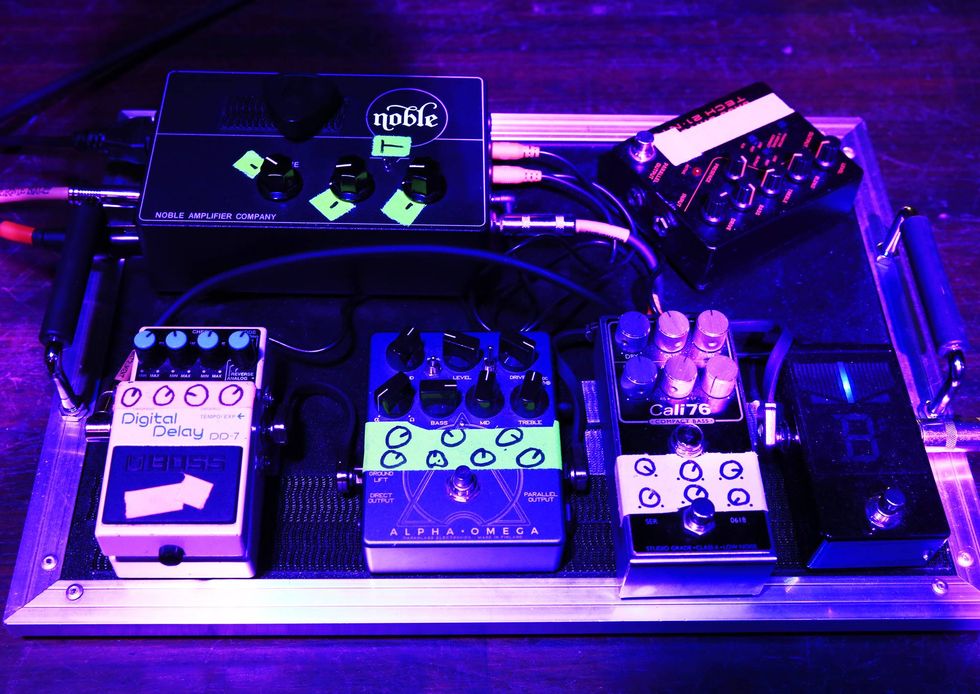
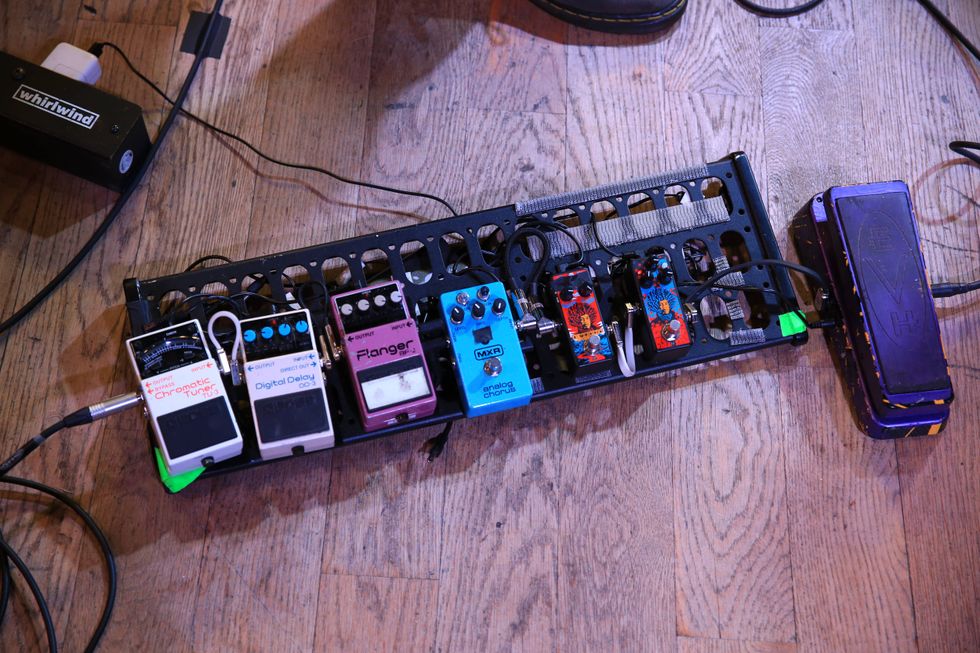
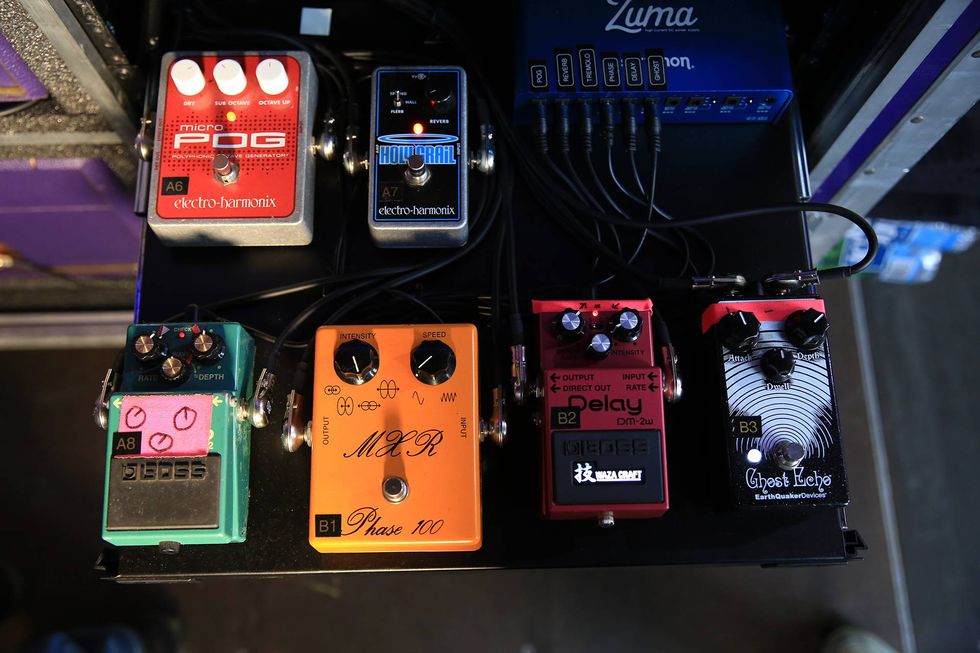
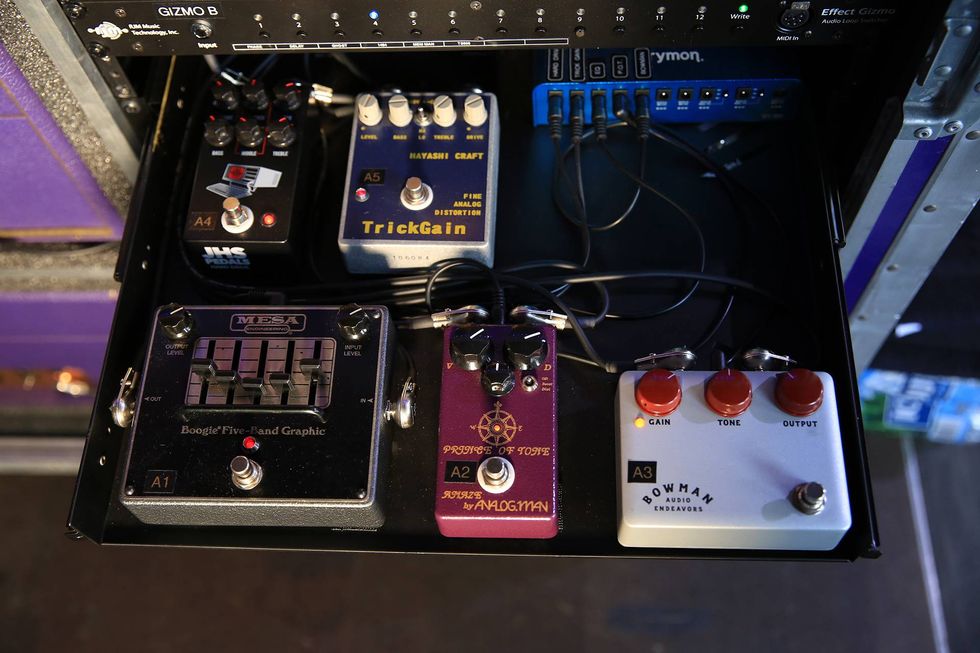
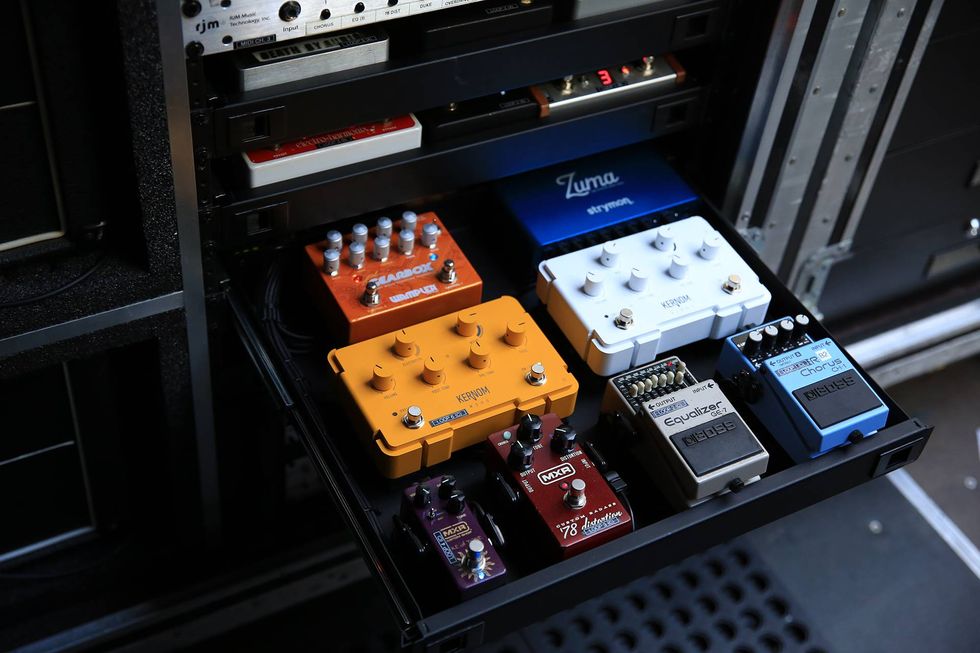
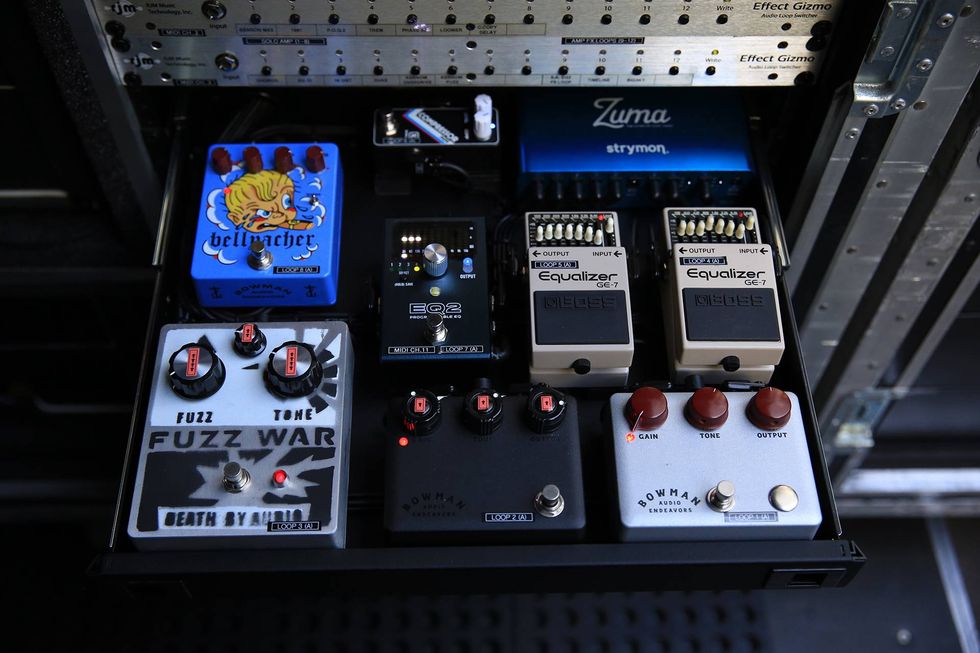
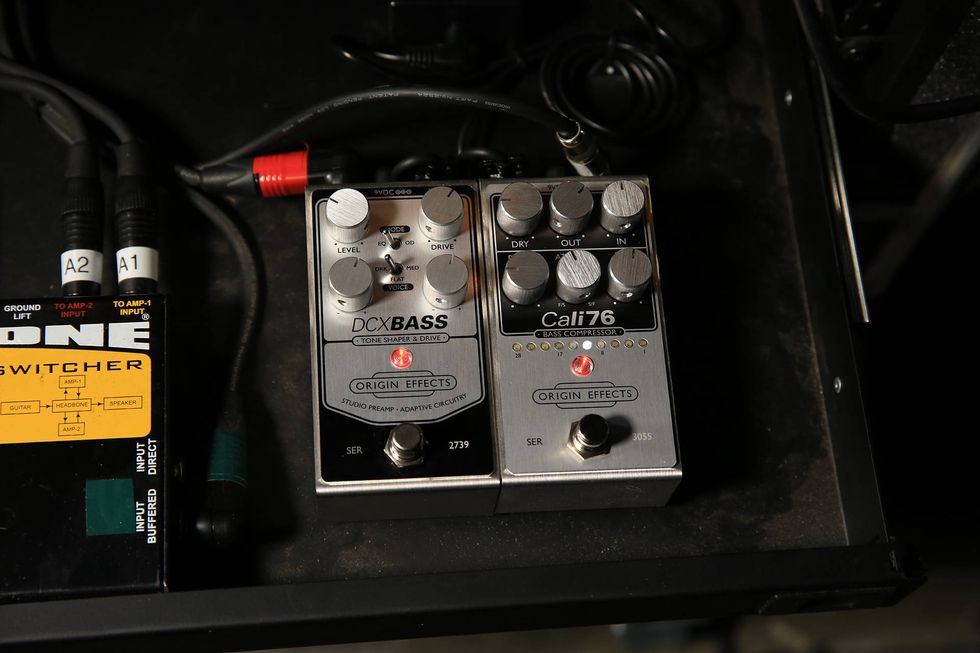
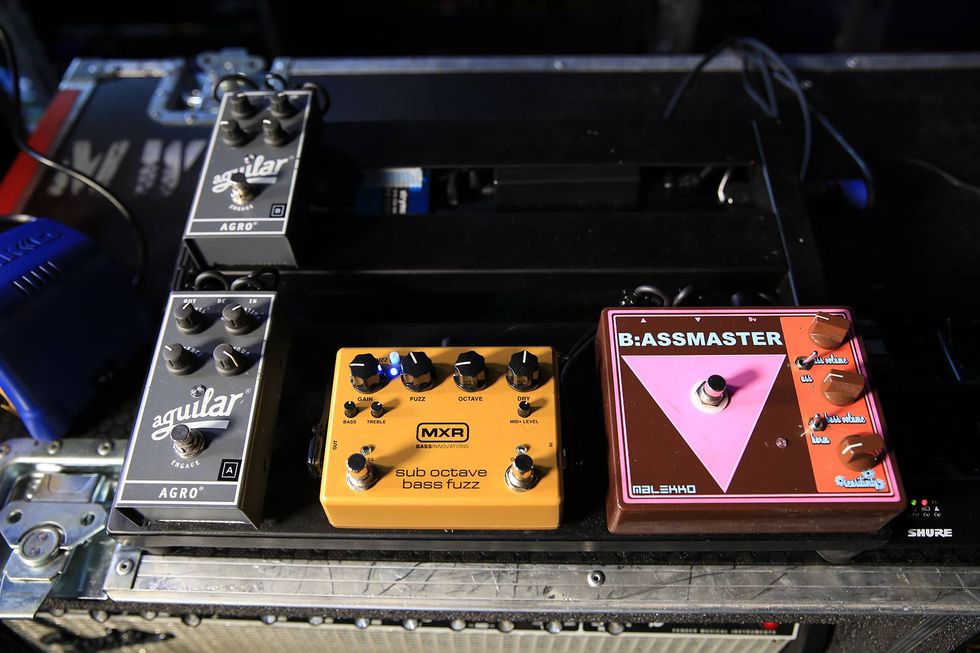
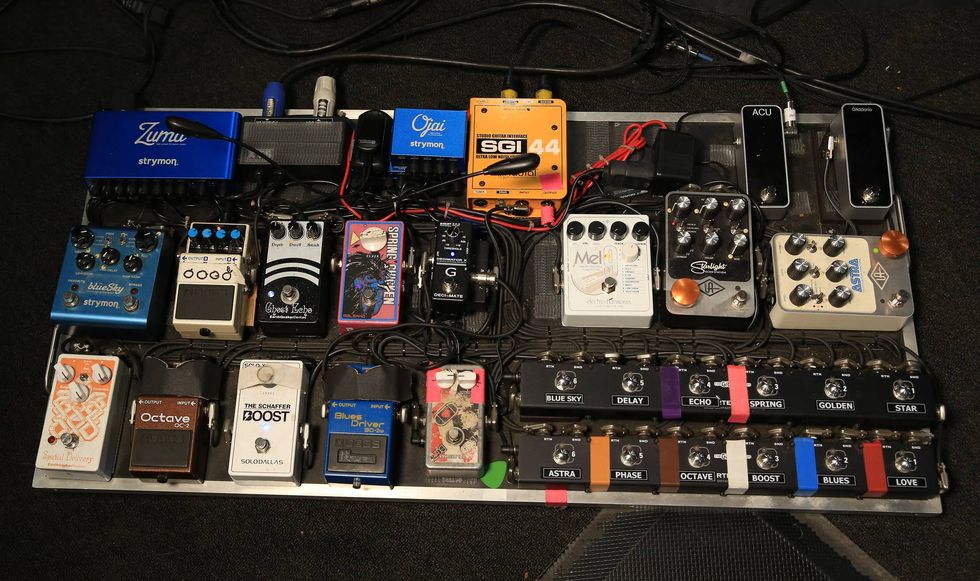
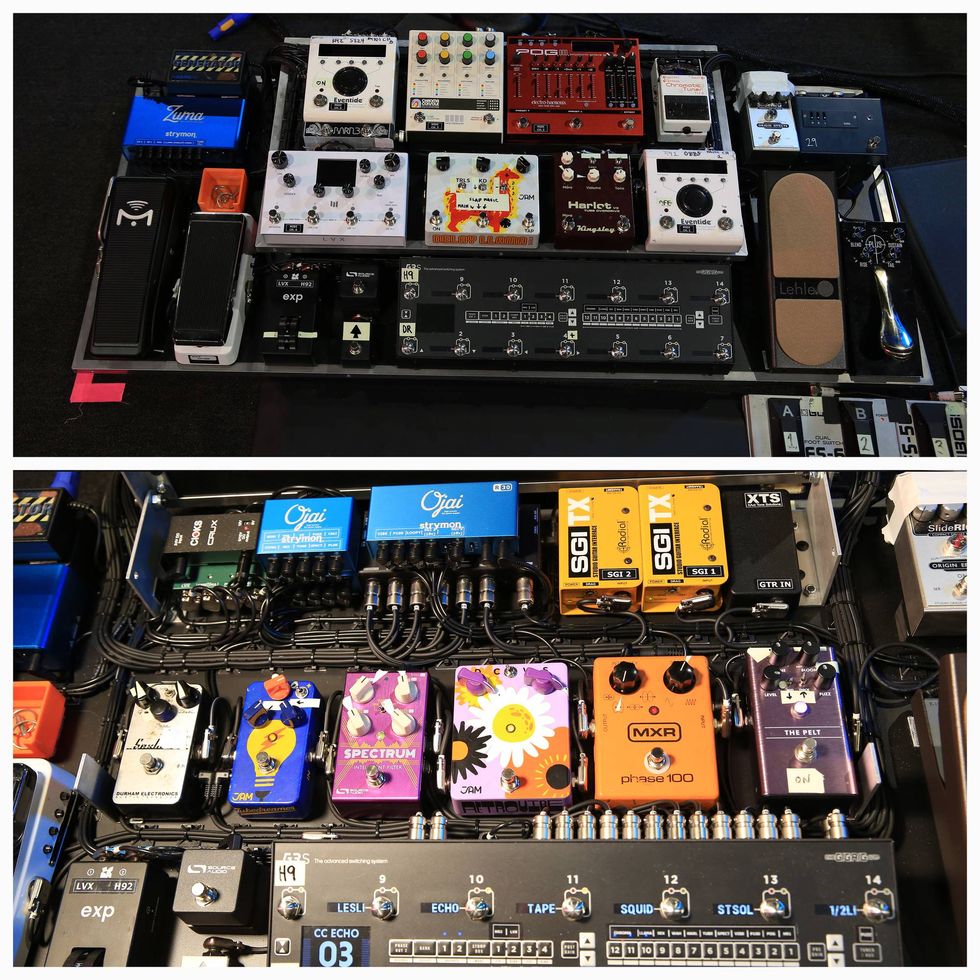
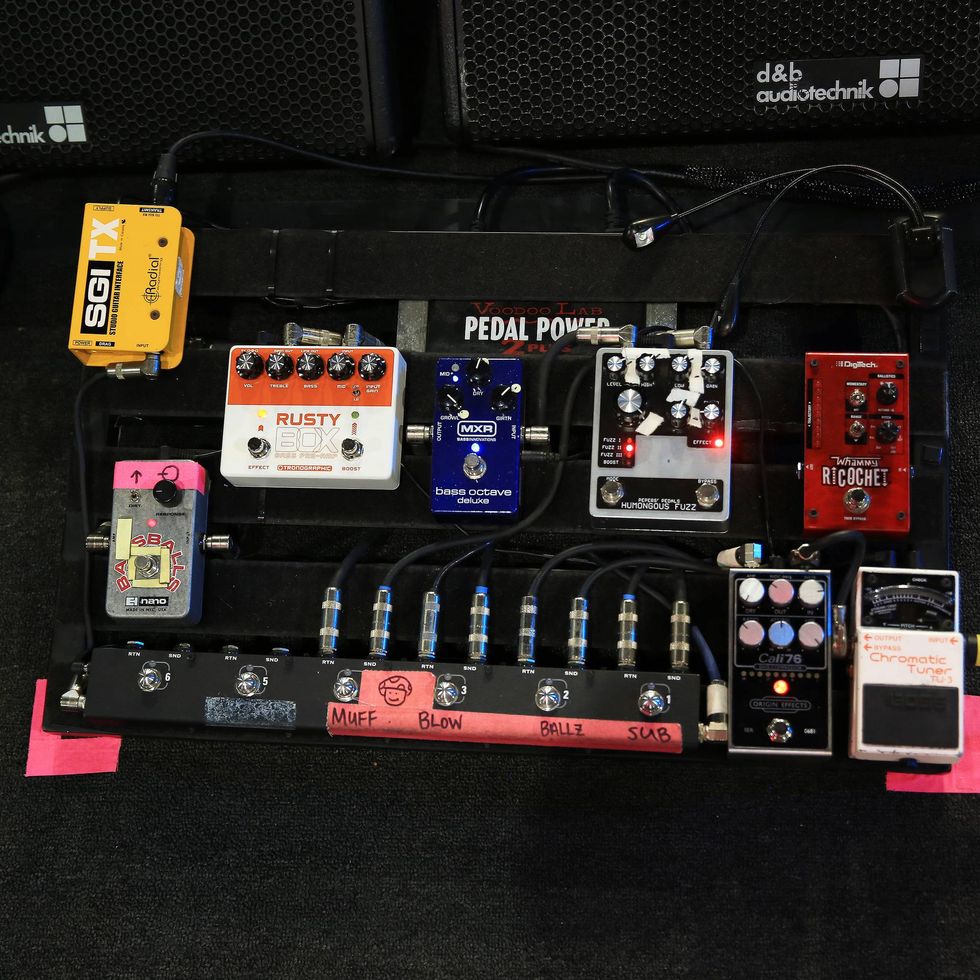



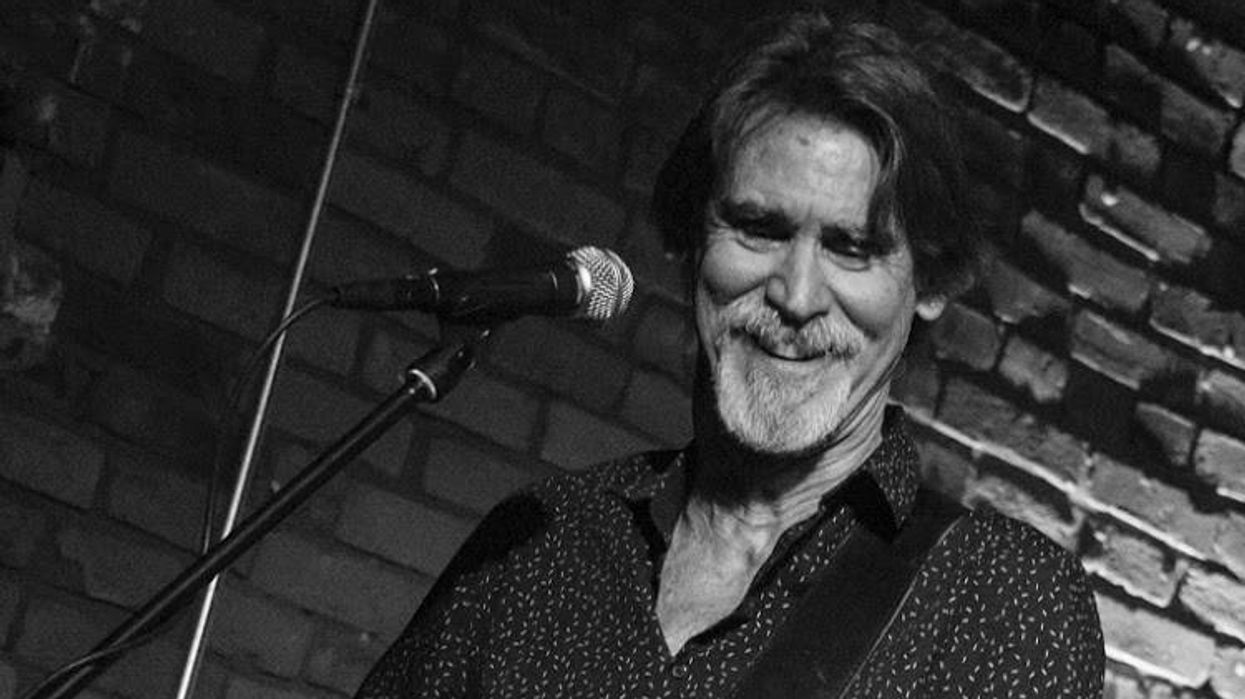
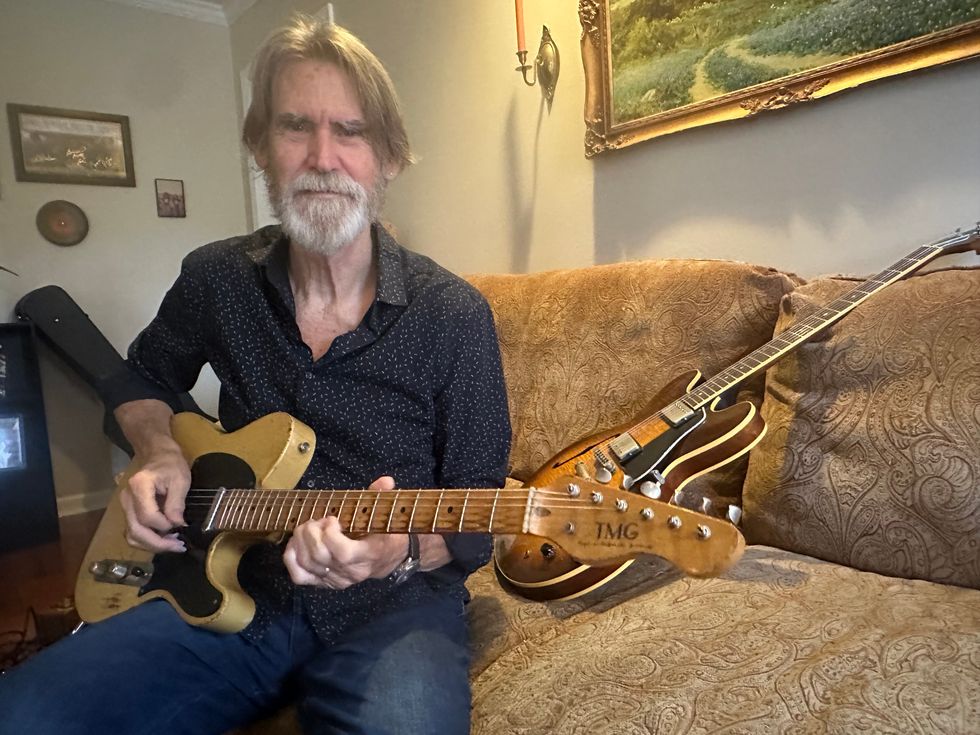 Will McFarlane keeps a Deluxe Memory Man in line with a Princeton—his rig for noodling on the couch at home.Ted Drozdowski
Will McFarlane keeps a Deluxe Memory Man in line with a Princeton—his rig for noodling on the couch at home.Ted Drozdowski